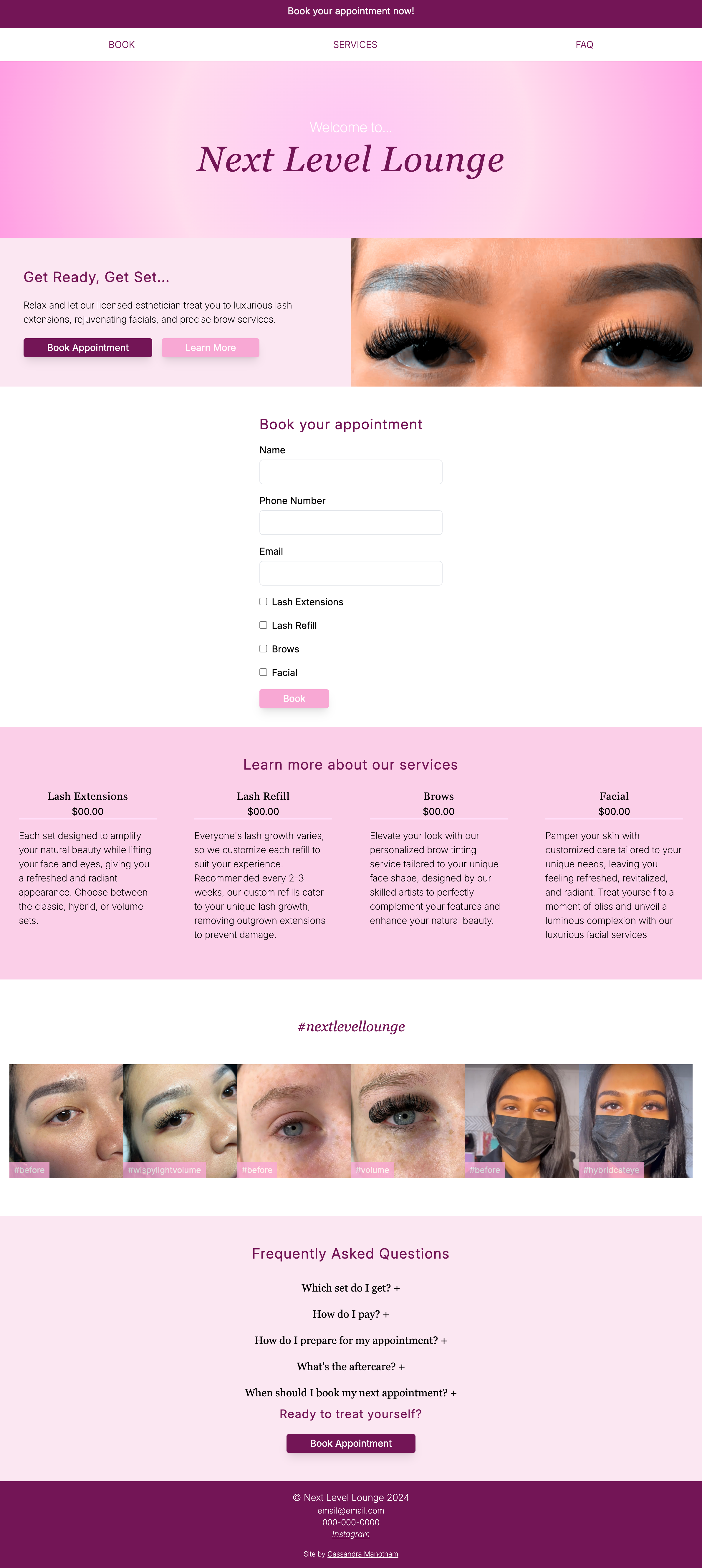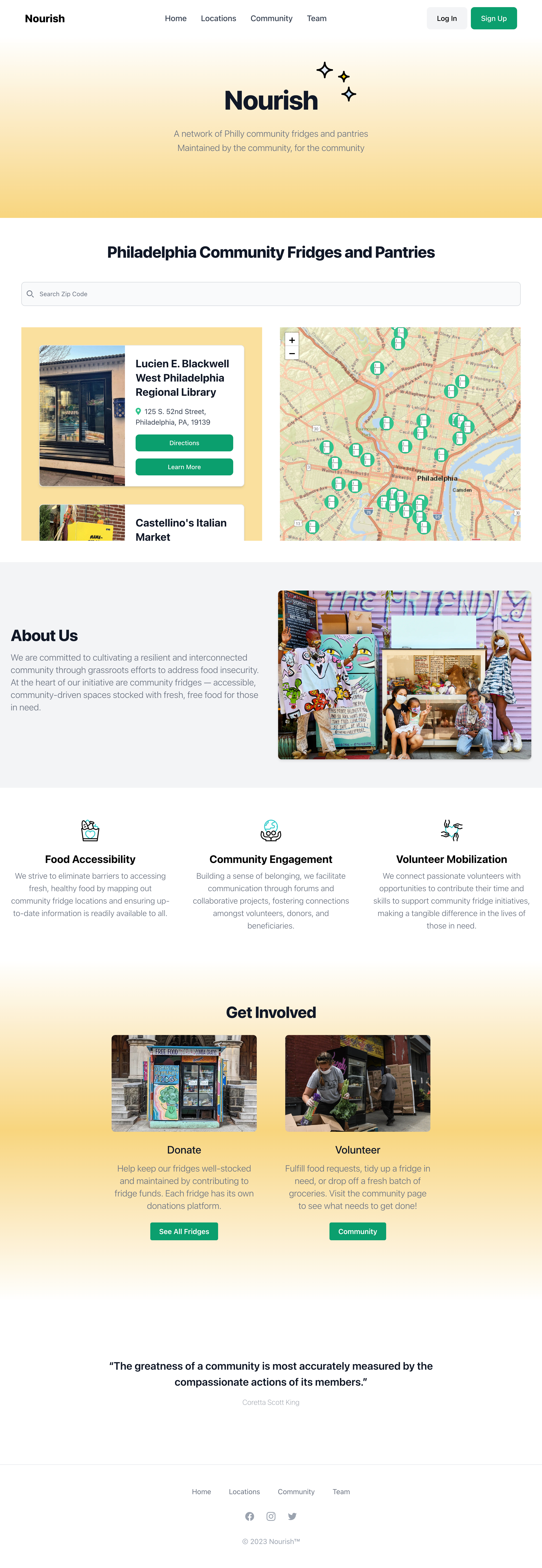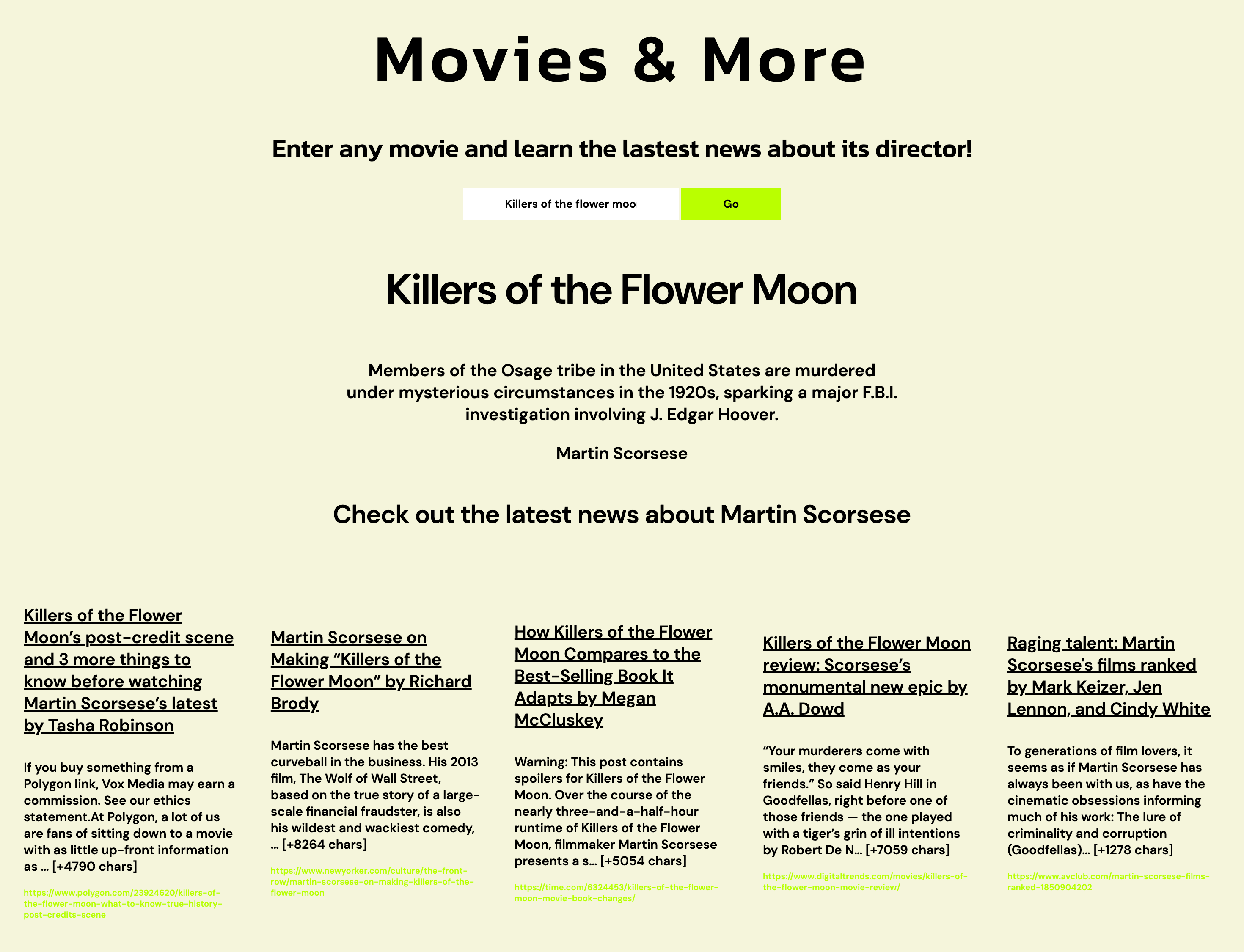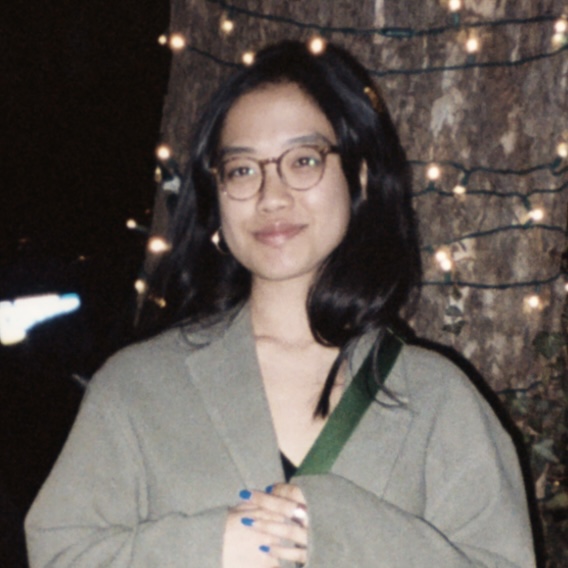
Cassandra Manotham
(she/her)
Fullstack Software Engineer, Designer, & Community Worker
Philadelphia
Hi there! I'm passionate about equity, design, and solving complex problems in creative ways. Before writing code, I led a digital equity program designed to serve the needs of immigrants and refugees. Now, I create websites and programs with all users in mind.
Open to: full-time roles, freelance projects, and coffee chats!
Next Level Lounge offers specialized beauty services focusing on lash extensions, facials, and brow transformations. Initially established as an Instagram presence, my goal with this website is to streamline operations, scale business, and present a unified brand experience.
React
Tailwind
UX/UI
Nourish
2023
Nourish is a network of community fridges in Philadelphia that connects users to get food or volunteer at fridges. The community board allows users to interact in real time creating community and communication amongst all fridges in Philadelphia.
React
Tailwind
UX/UI
Movies & More
2023
This app enables users to enter a movie title to learn about the movie and latest news about the director. This simple app implements multiple API's to create a dynamic website.
HTML
CSS
JavaScript
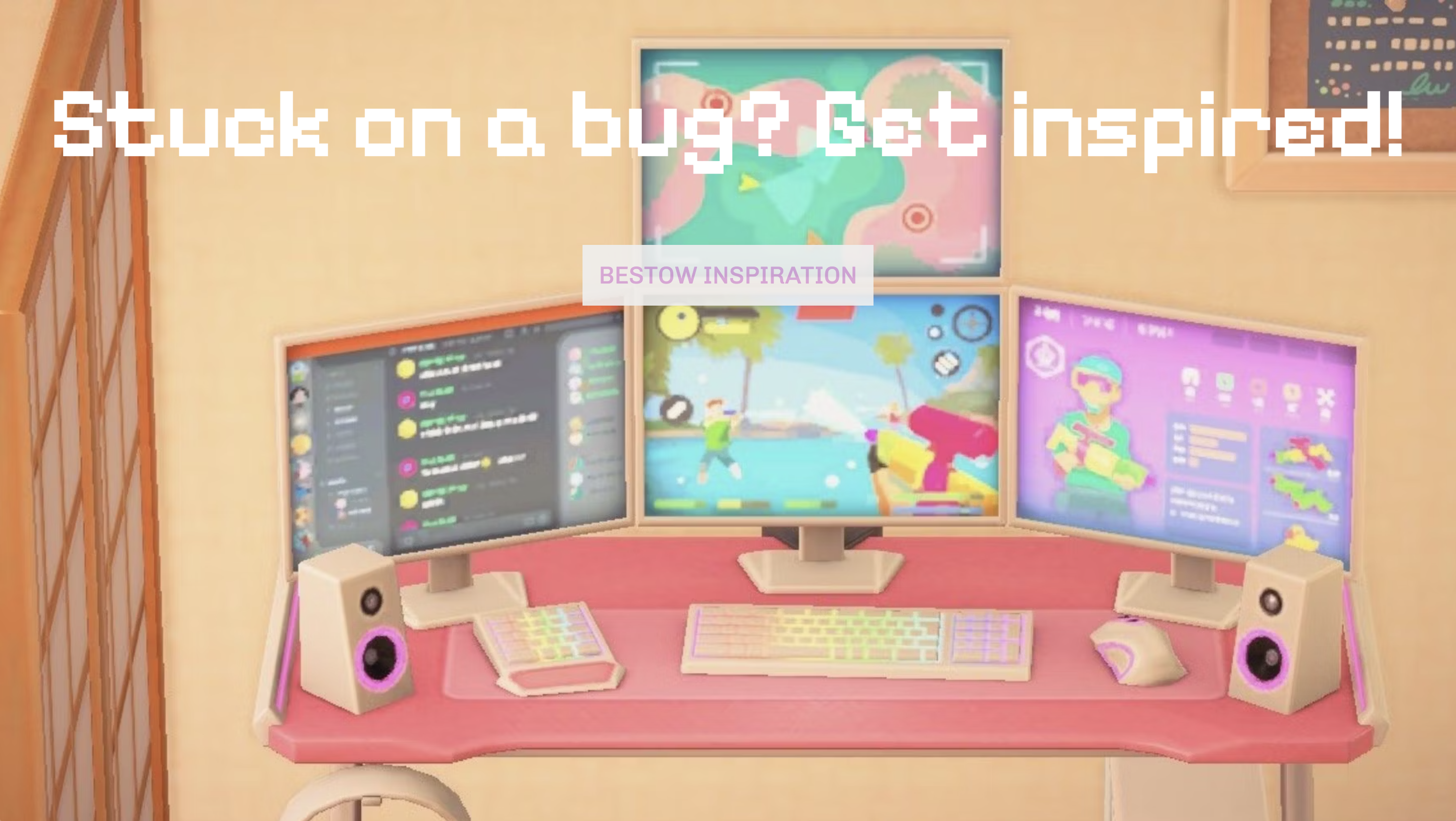
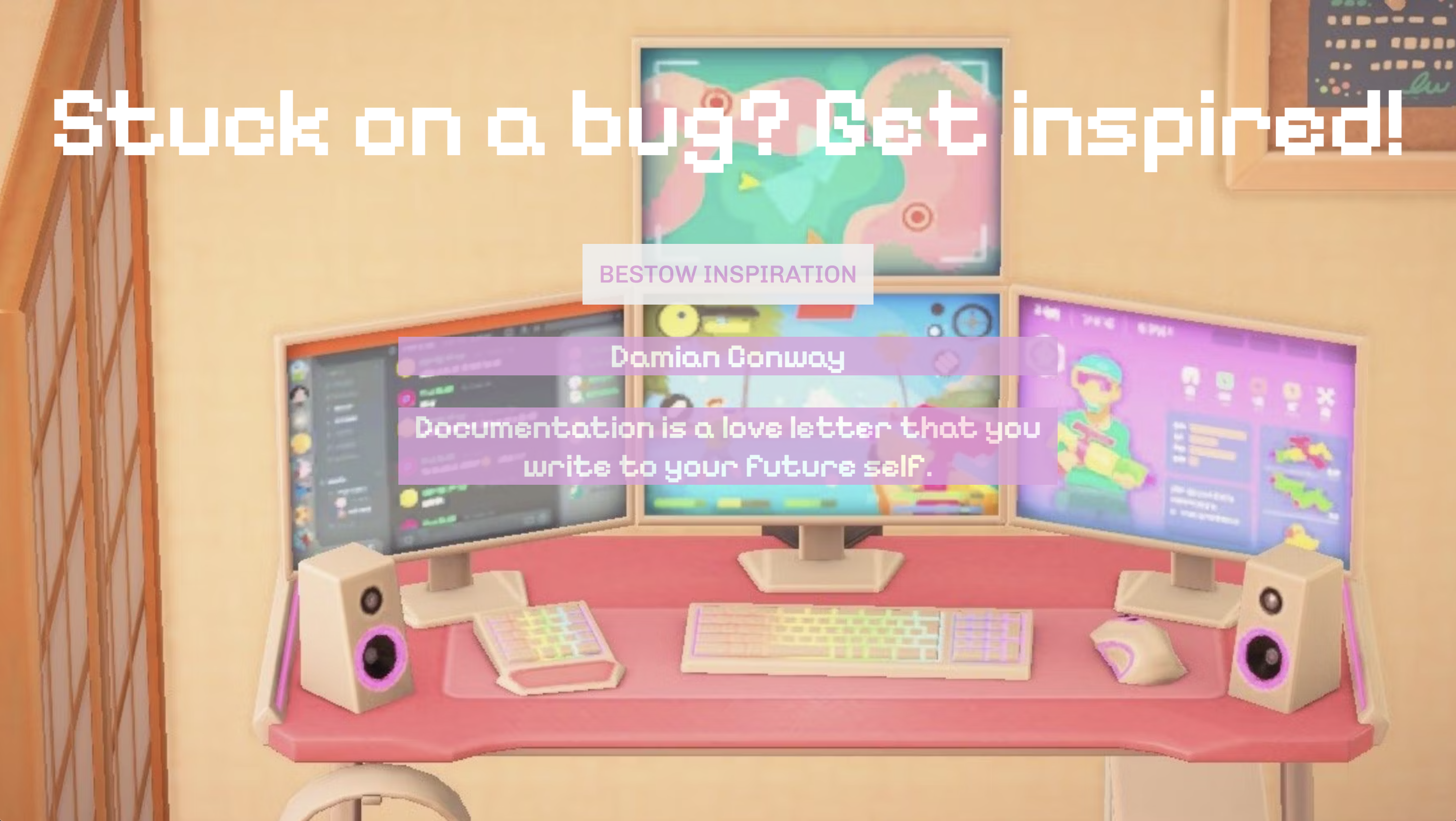
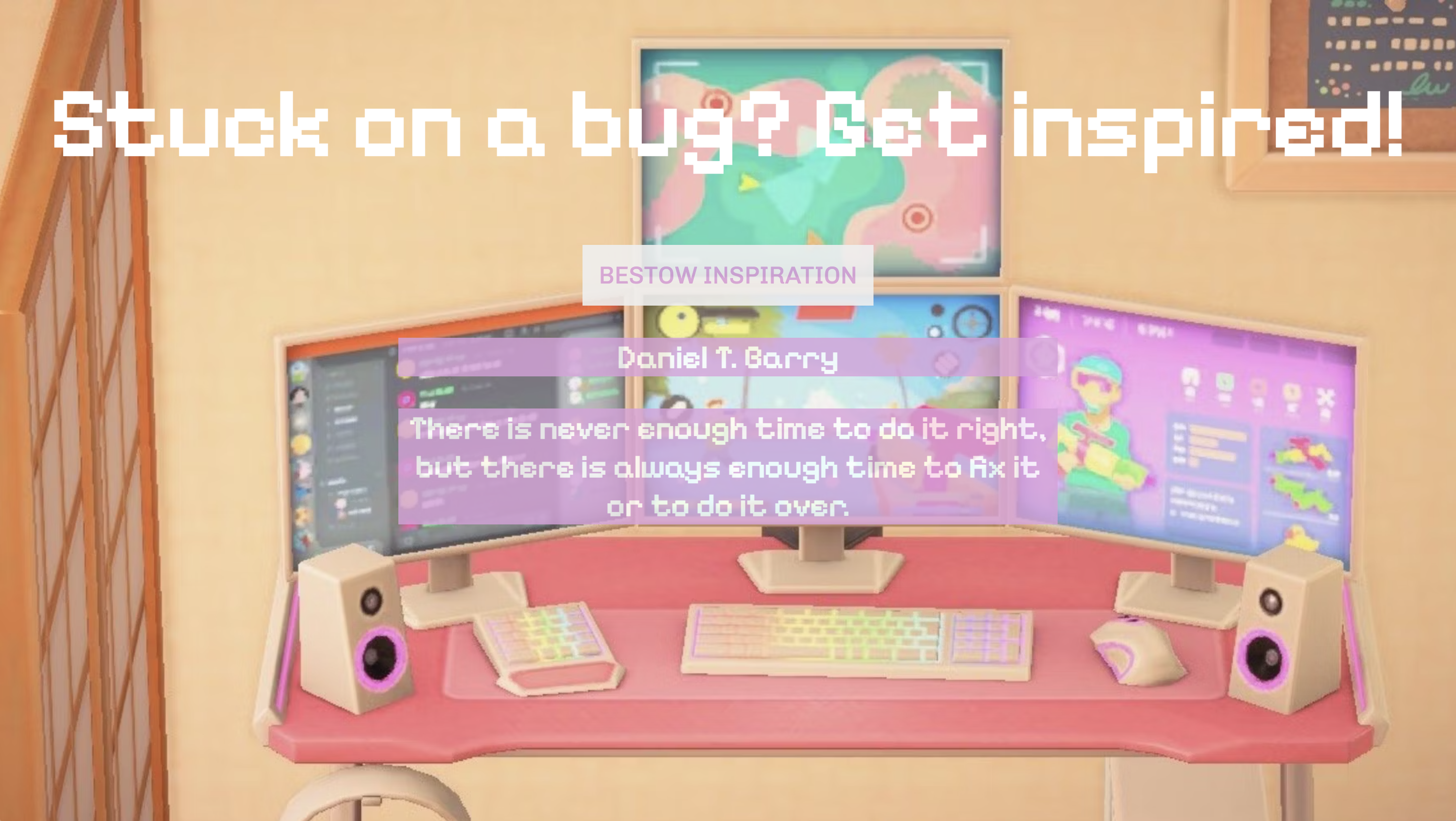
This site is recommend for engineers stuck on a bug. This app makes a request to an external server using an API, showing the simple beauty of programming!
HTML
CSS
JavaScript
Fishadelphia
2021
Fishadelphia connects seafood harvesters with Philadelphians through a seafood subscription program. I led the website redesign through UX Research and design.
UX/UI
Graphic Design
Project Management
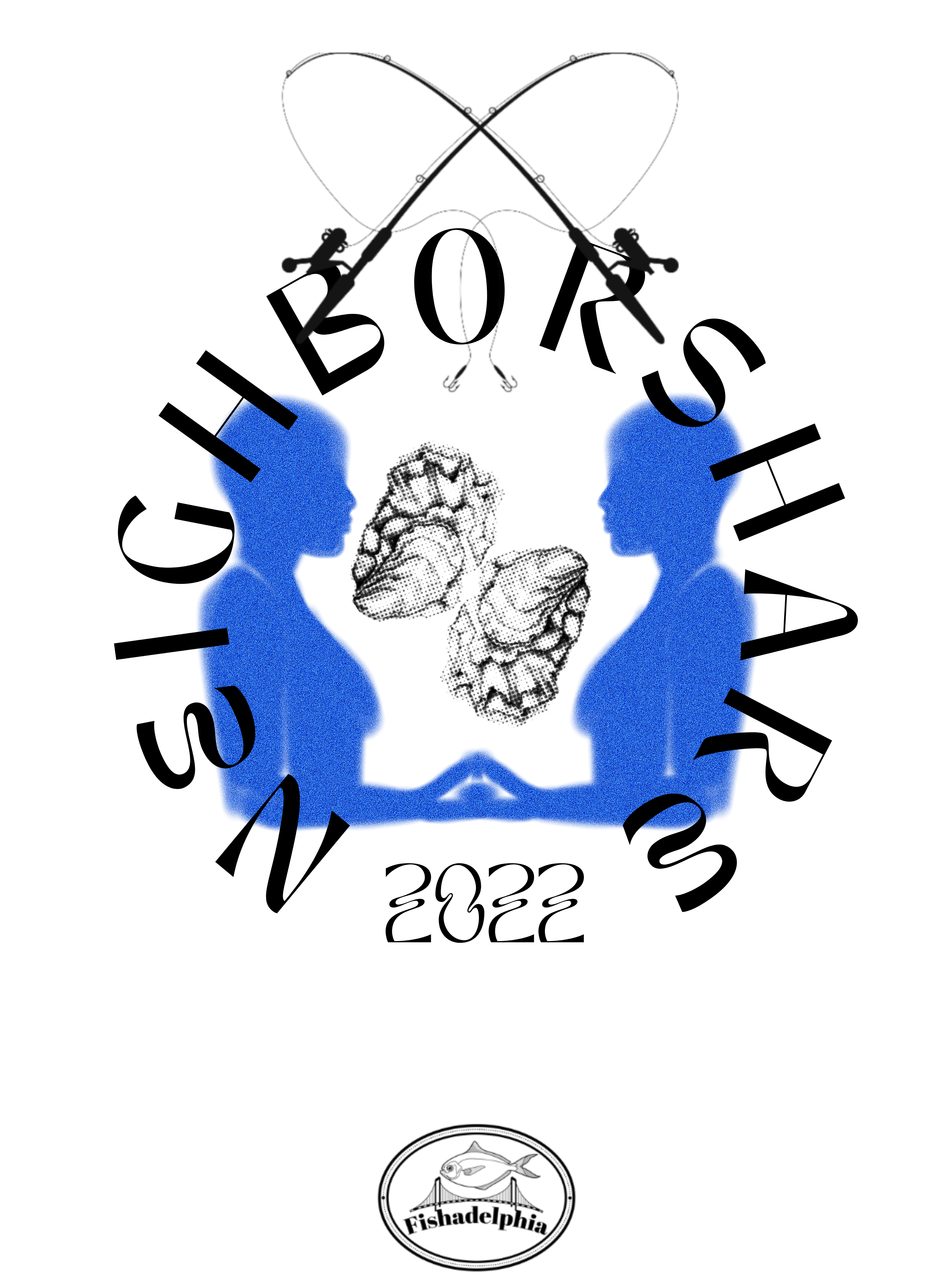
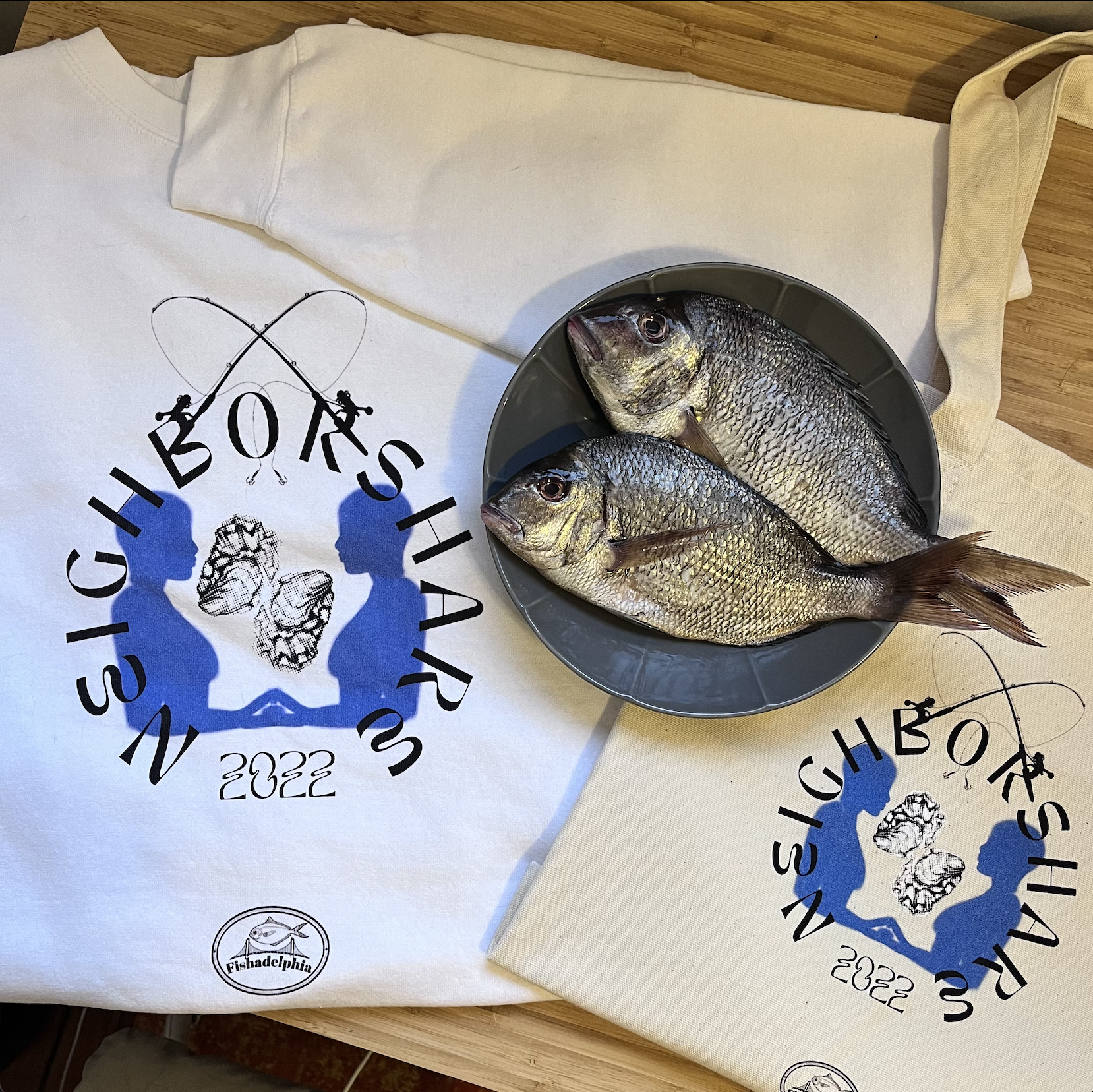
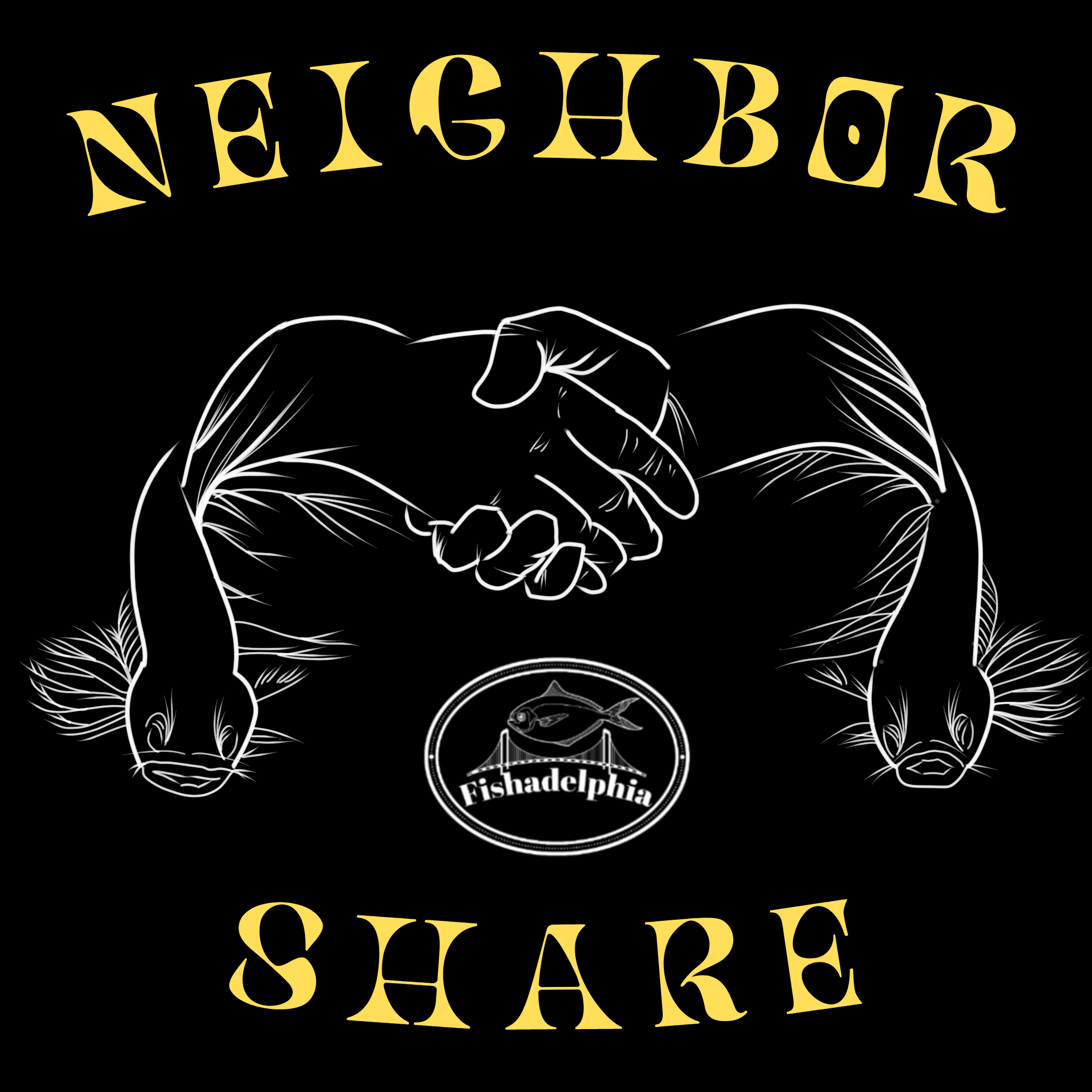
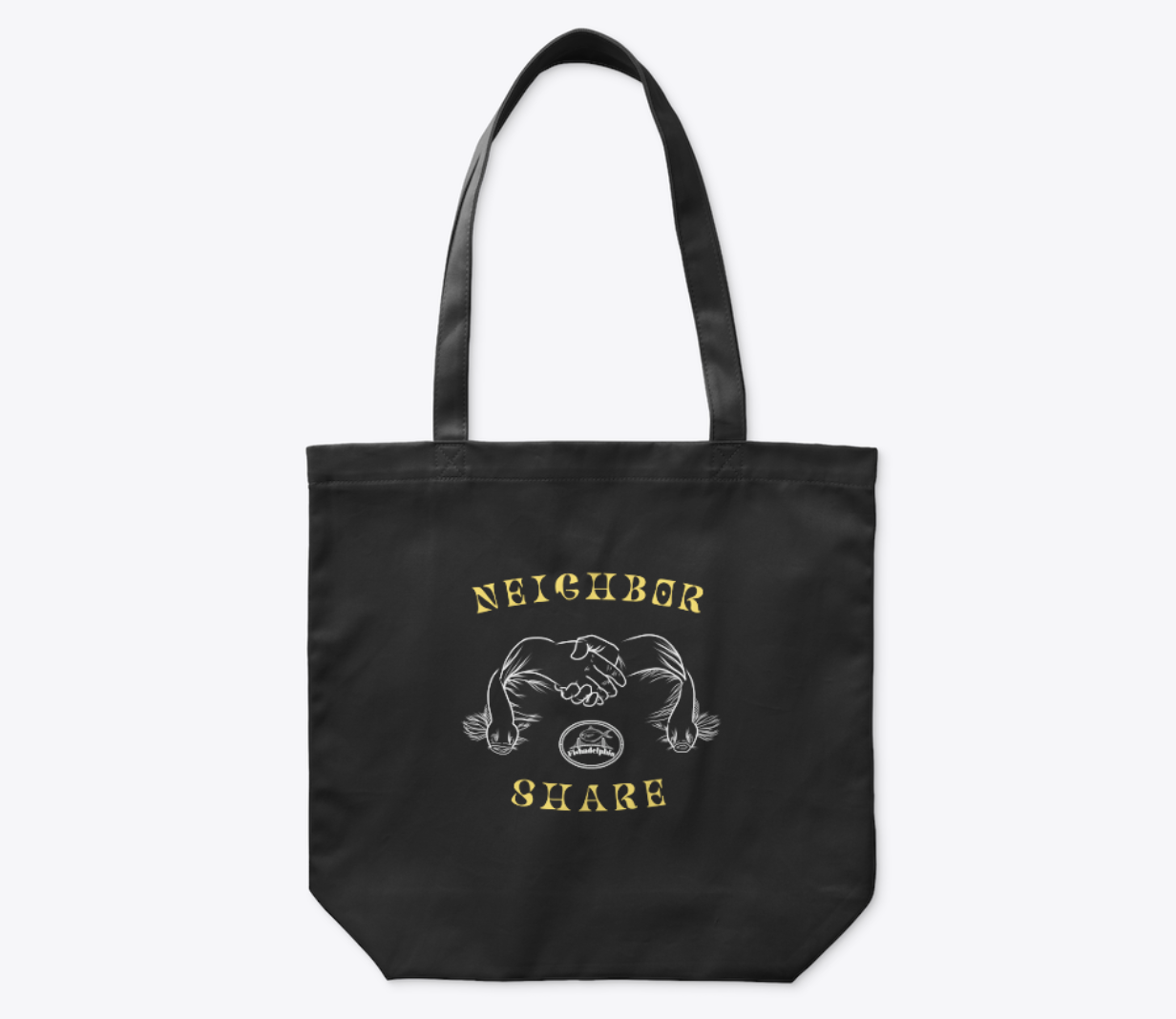
These tote bags were designed to leverage customer resources and crowdfund for the launch of Neighbor Share, a mutual aid initiative, that provides low-cost or free weekly seafood shares to customers.
Illustration
Neighbor Share
2021
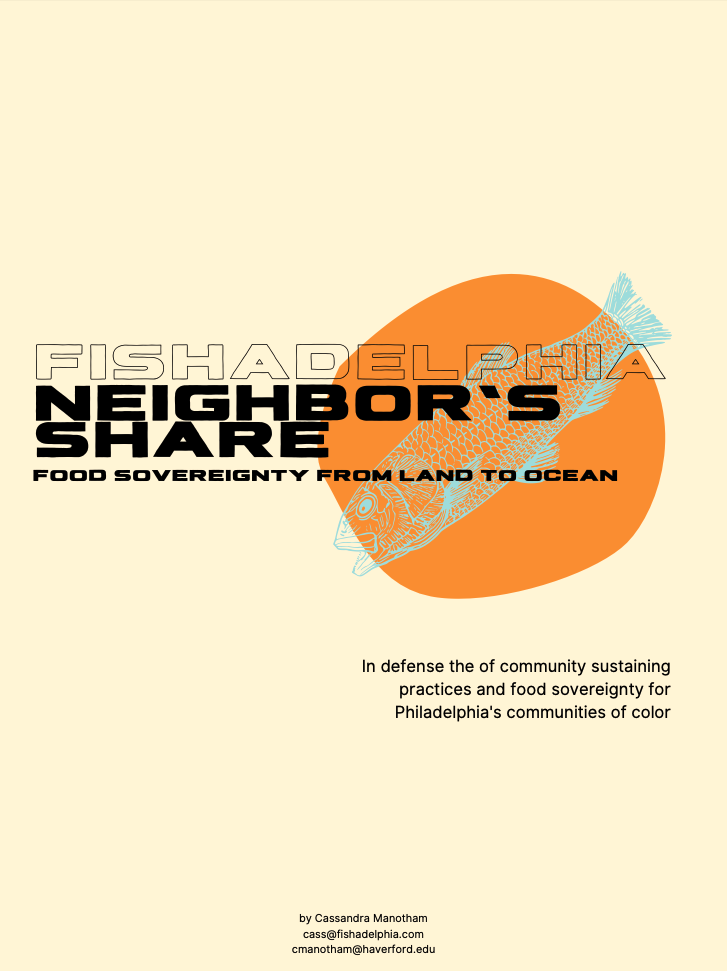
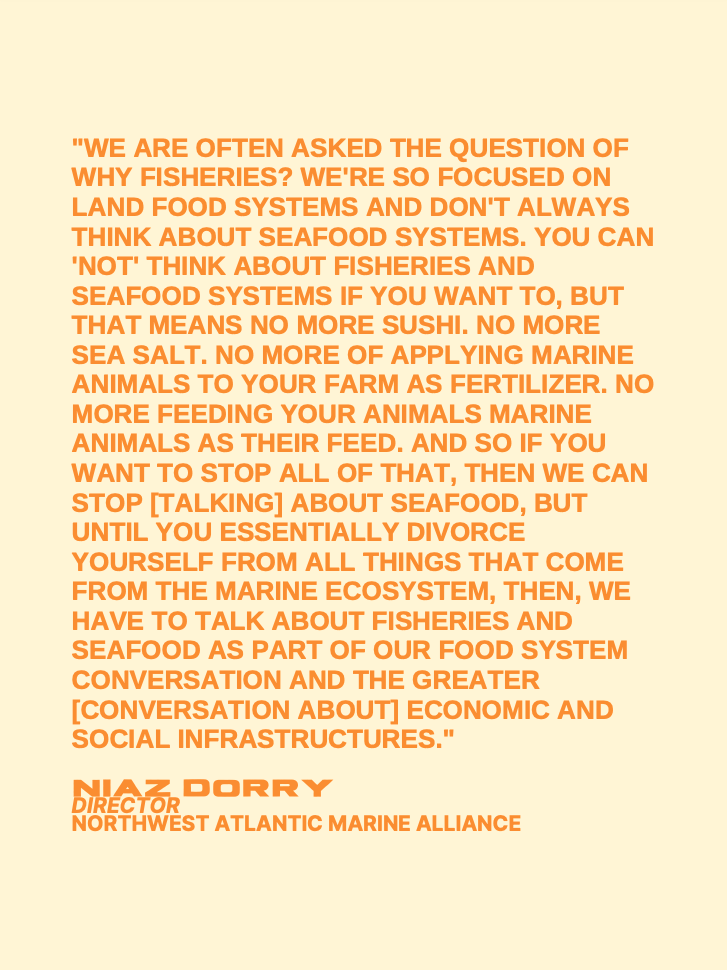
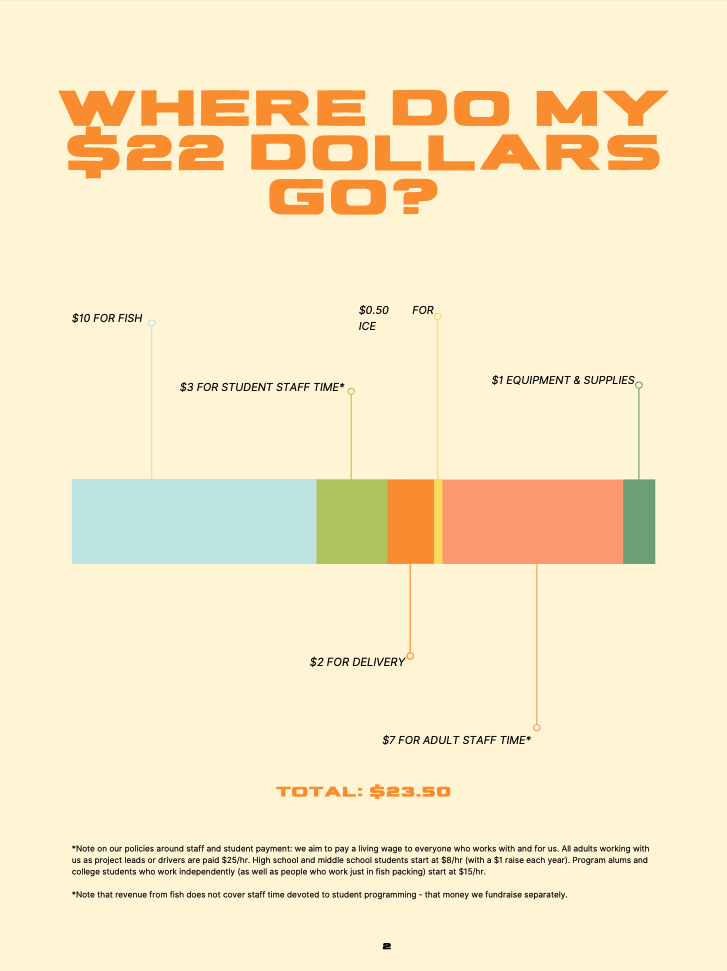
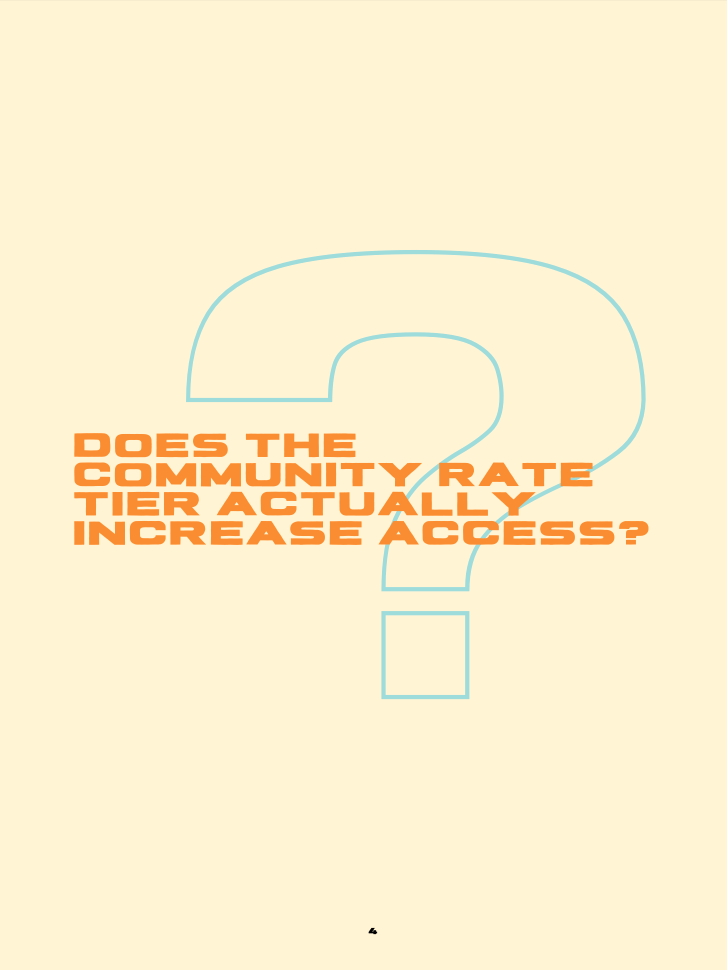
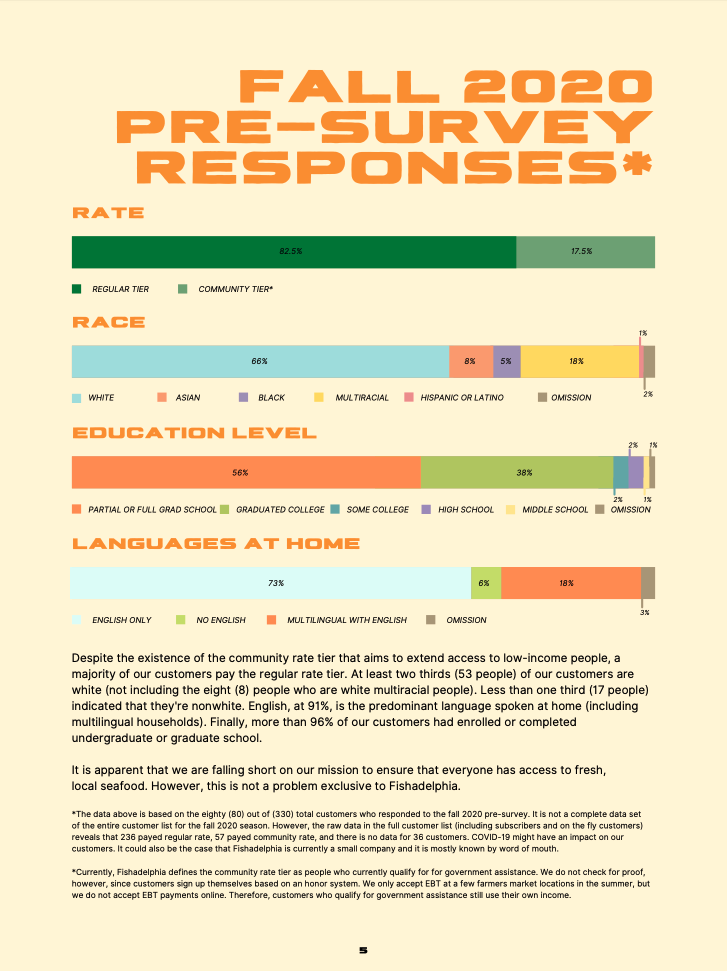
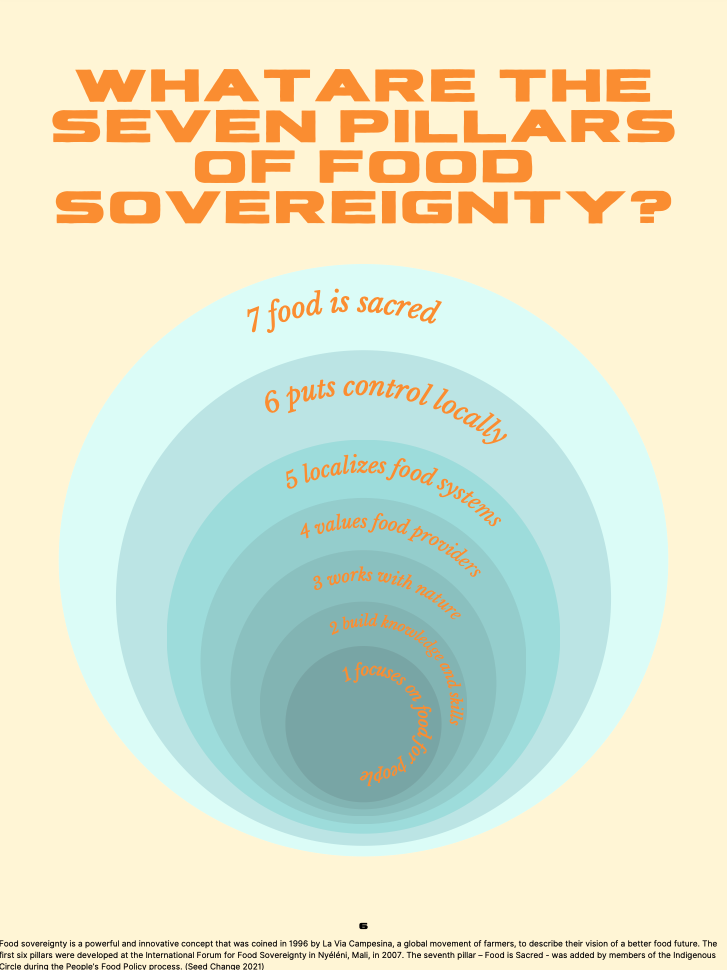
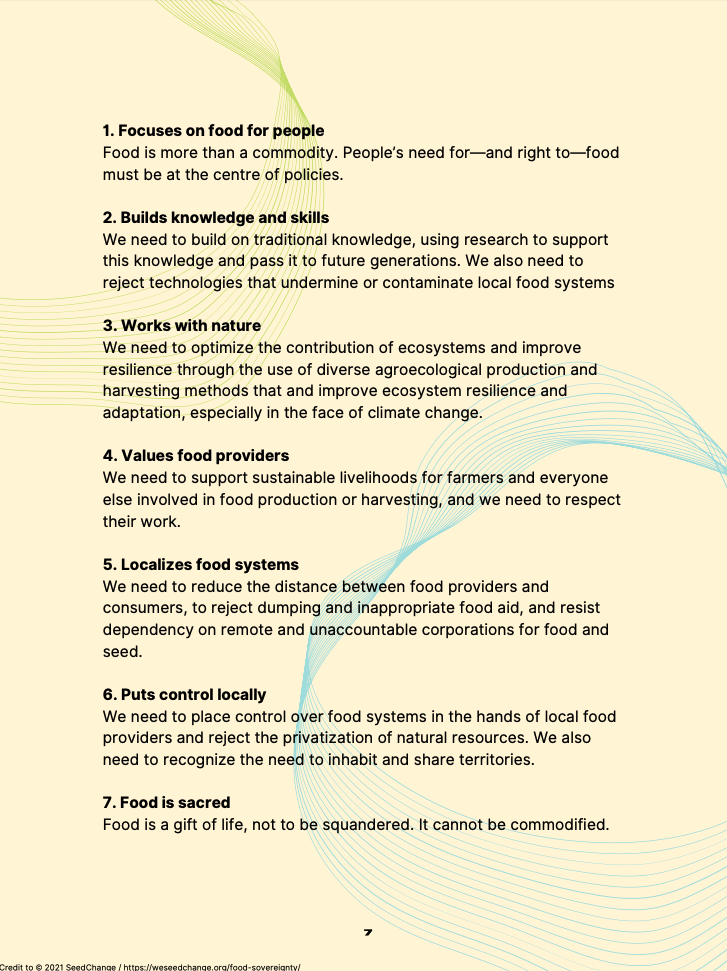
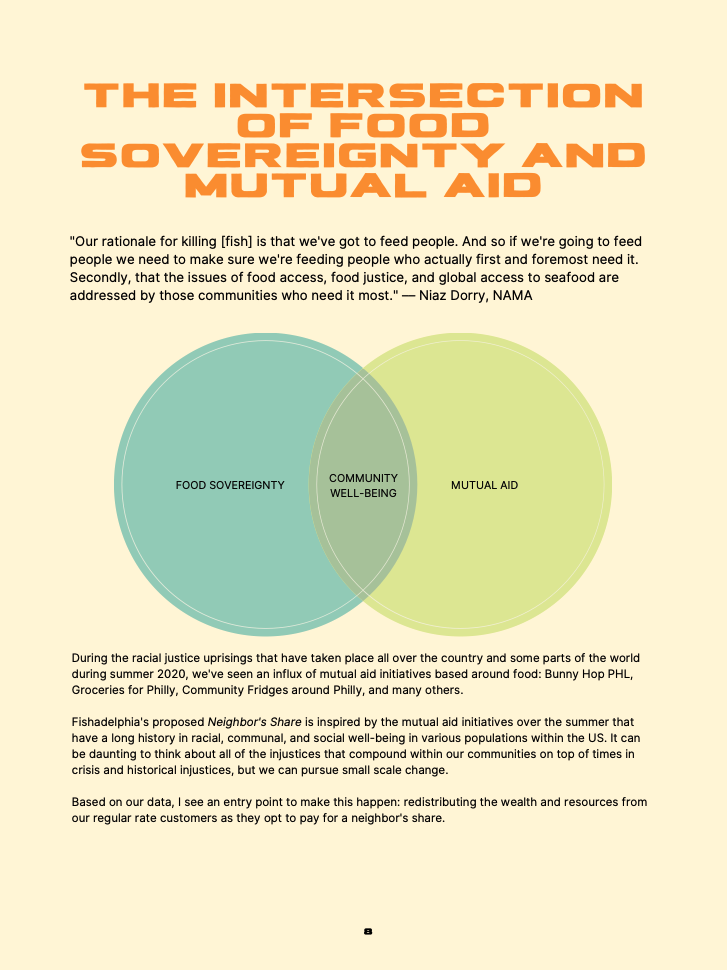
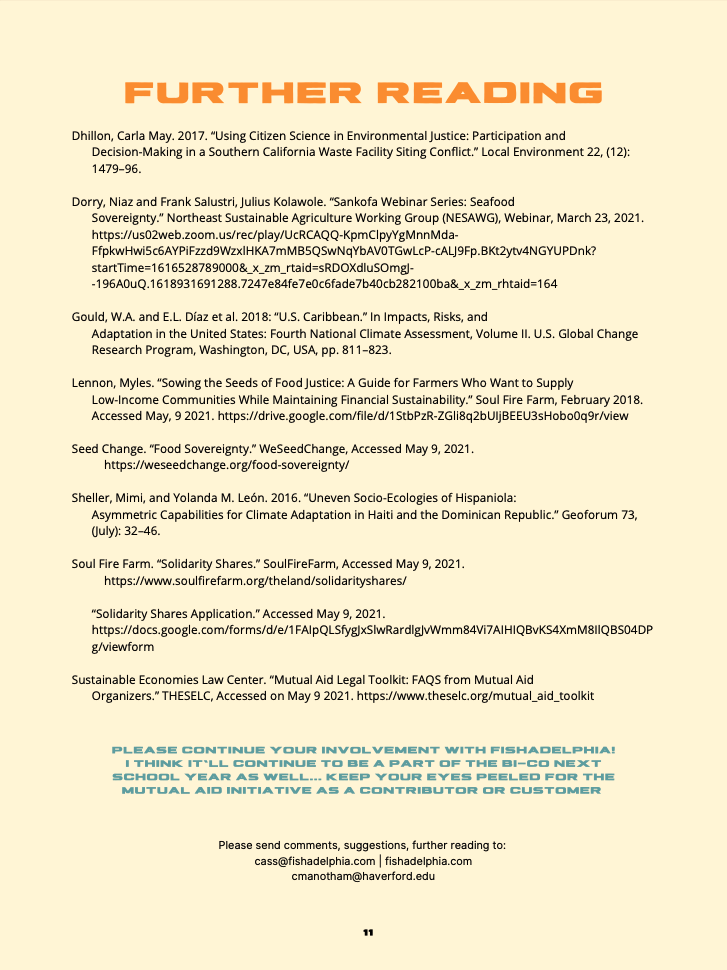
Food Sovereignty from Land to Ocean highlights the intersections of food sovereignty and mutual aid initiatives to bring power back into the hands of consumers, producers, and the environment in the fish eating ecosystem.
Zine
Spaces for Us
2021
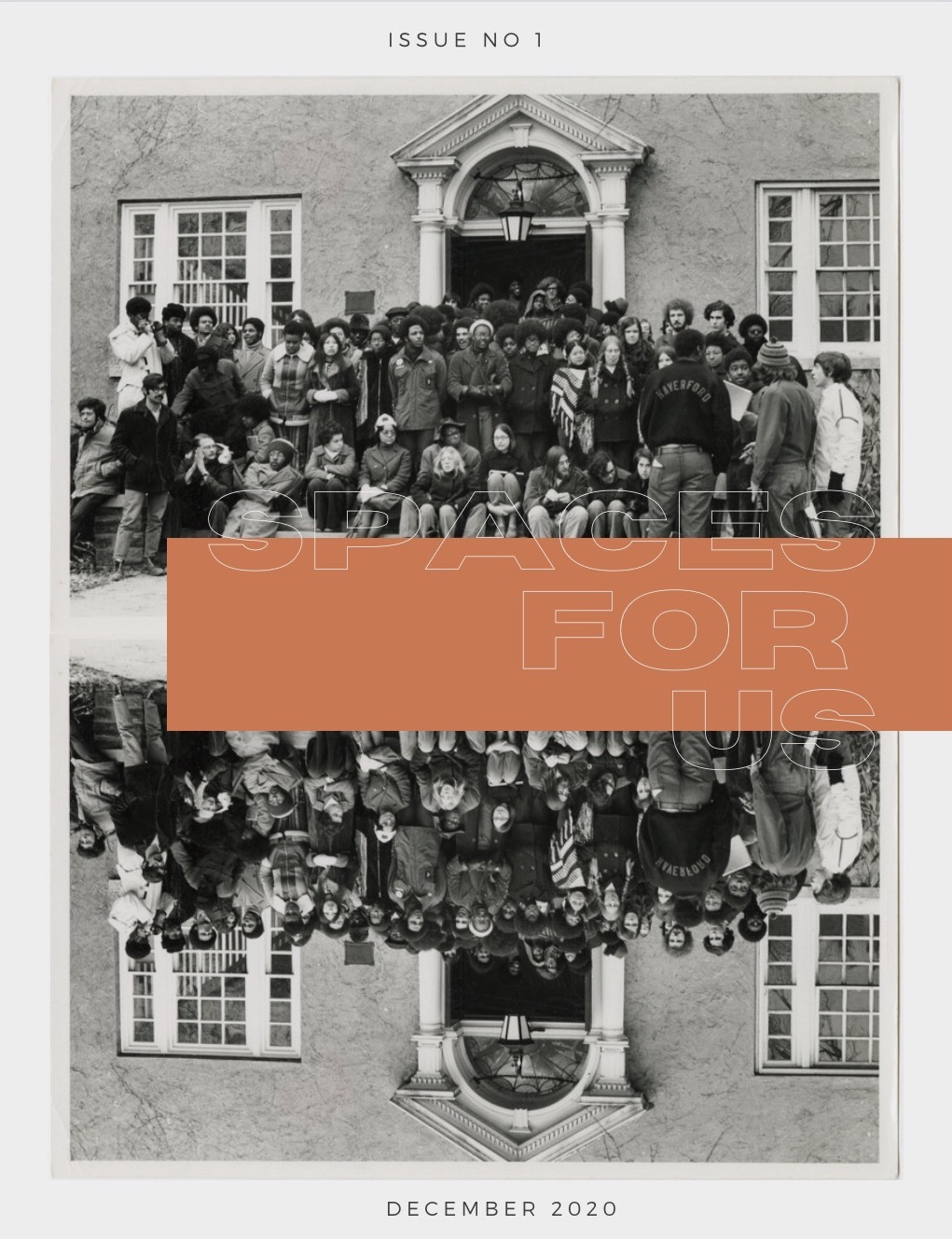
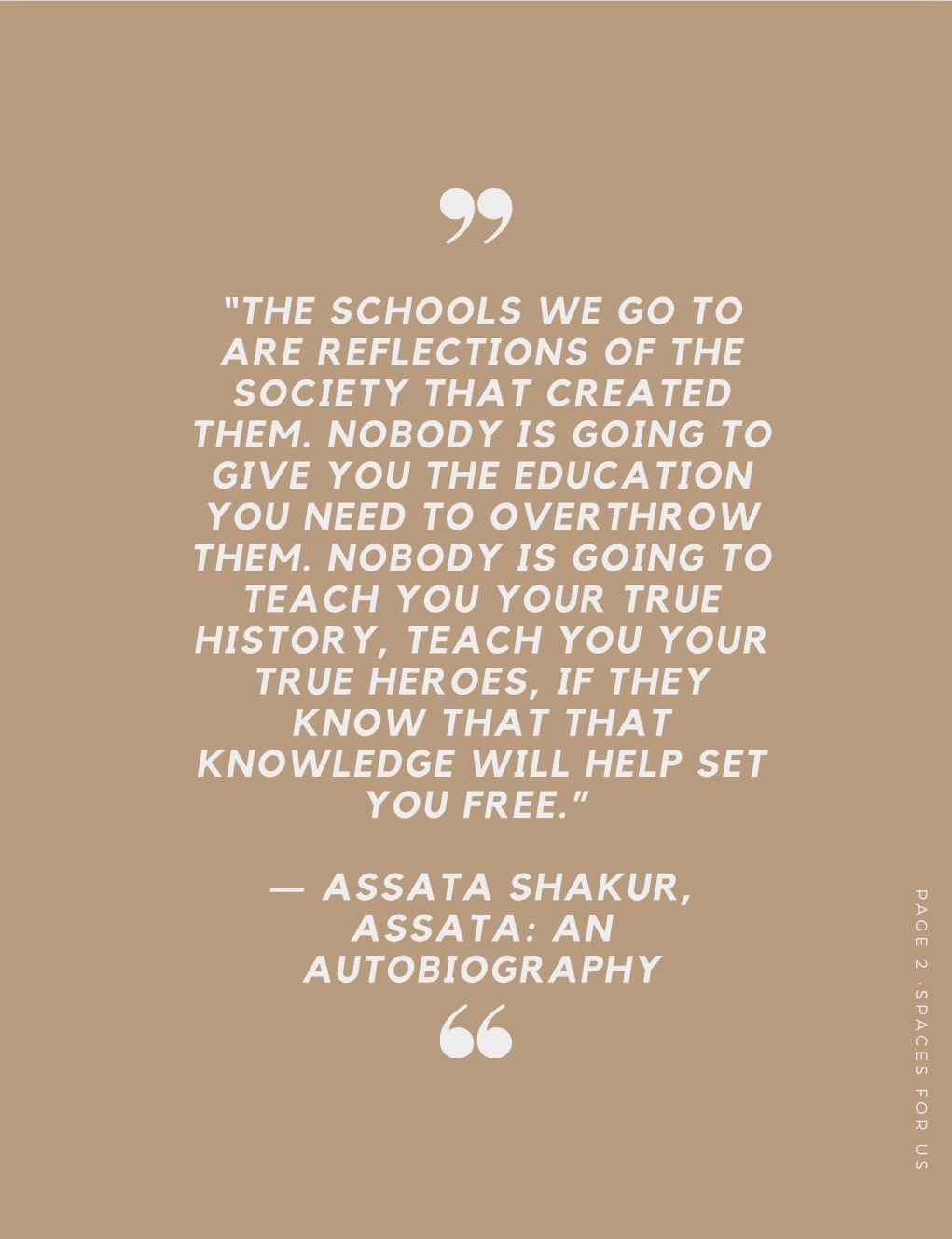
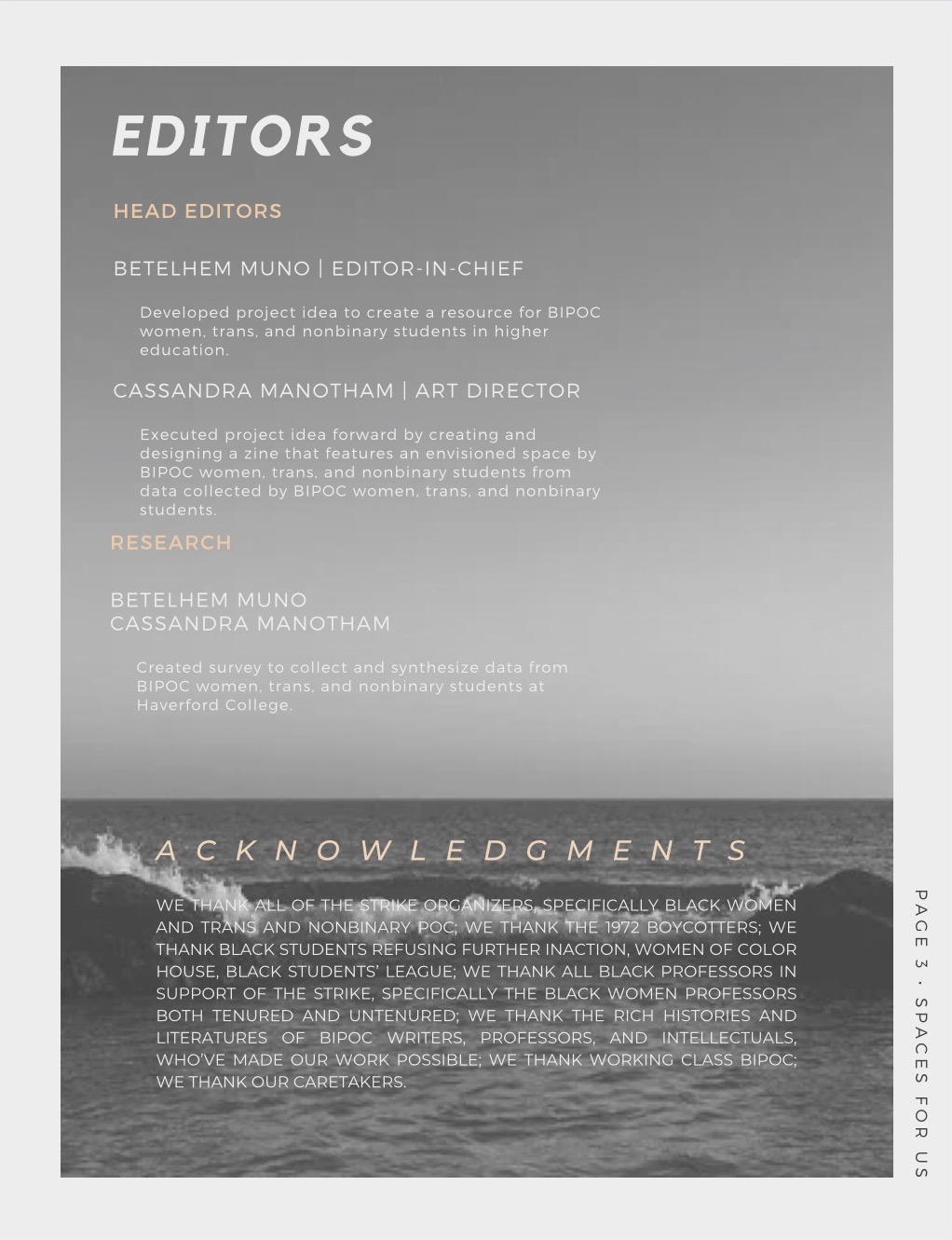
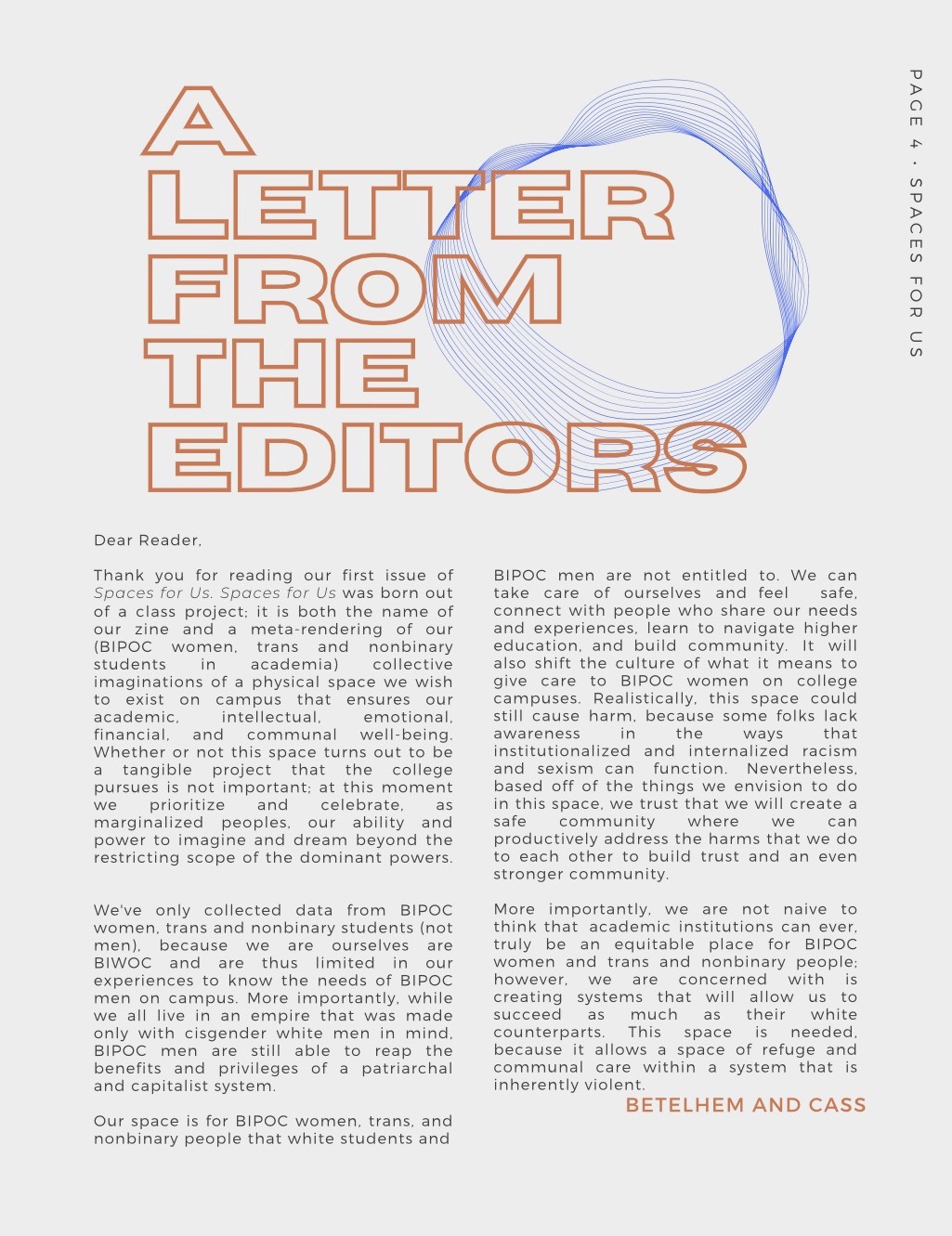
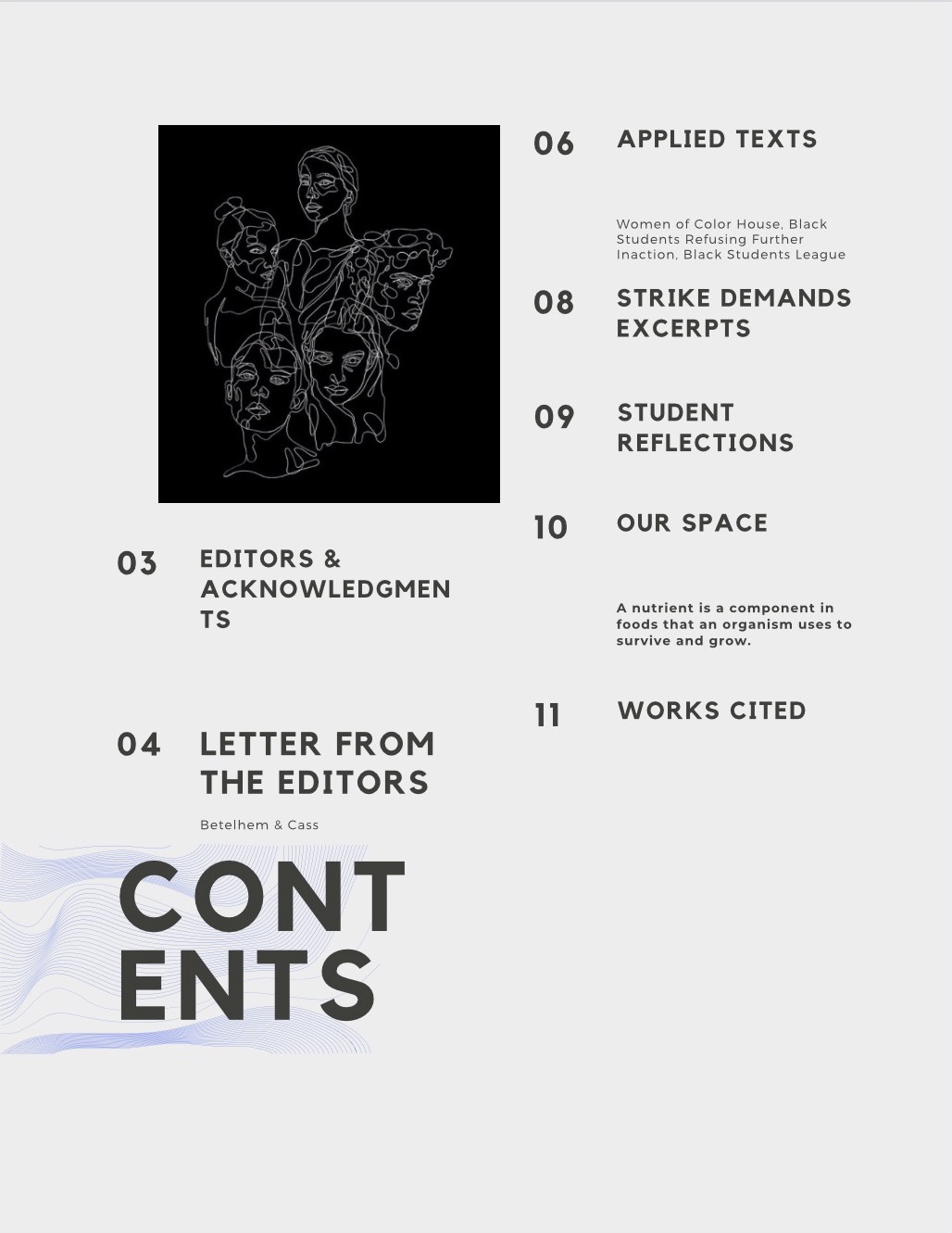
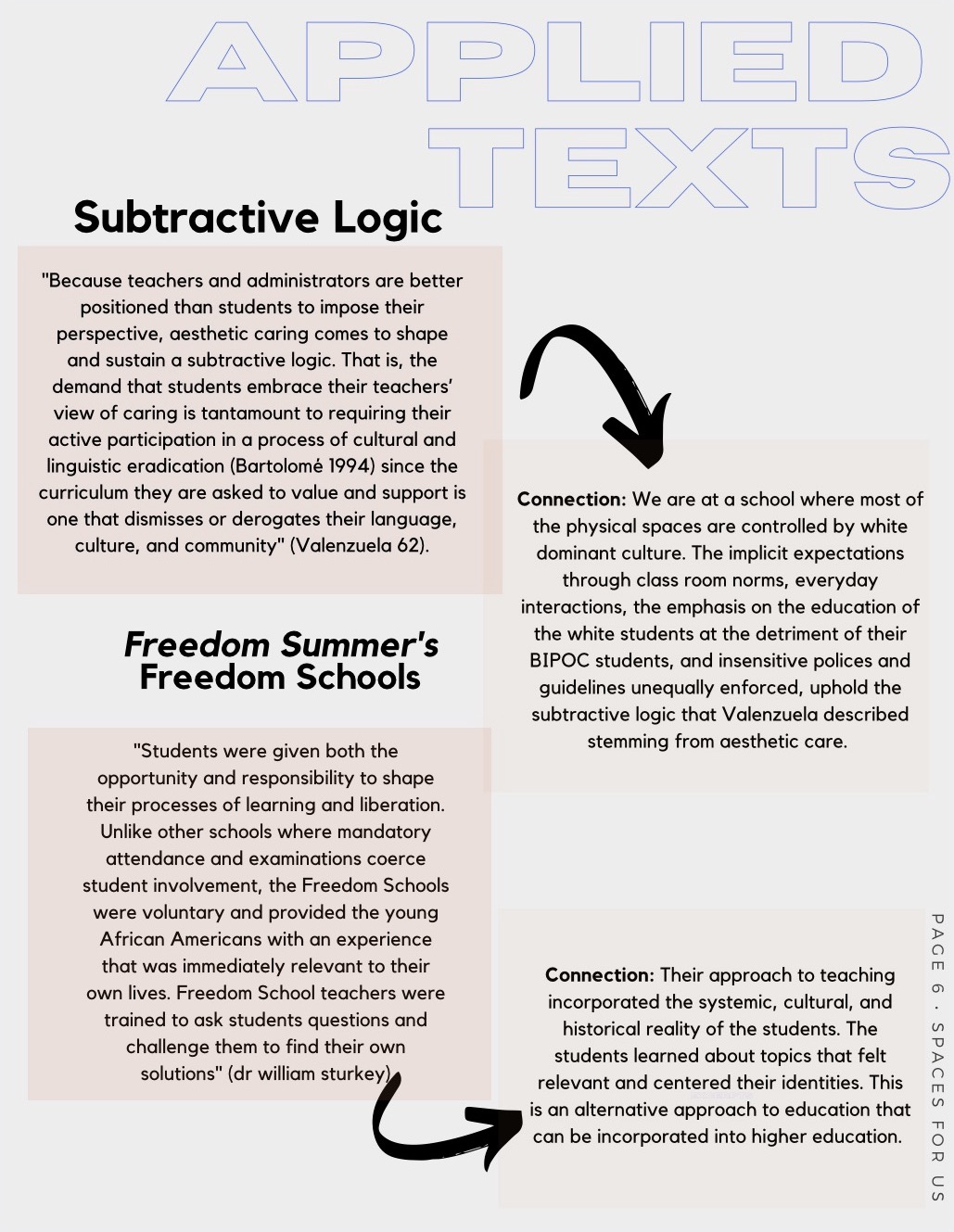
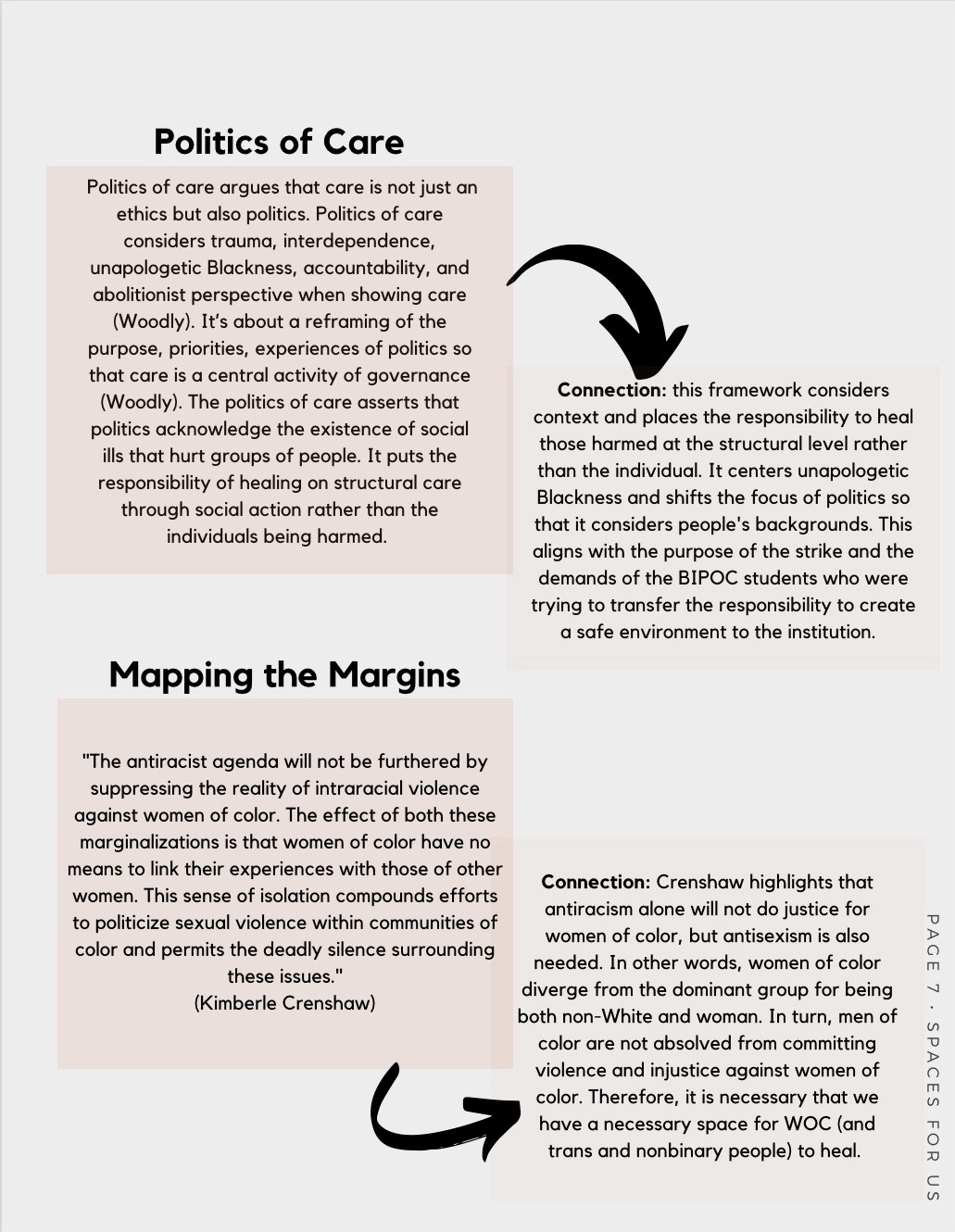
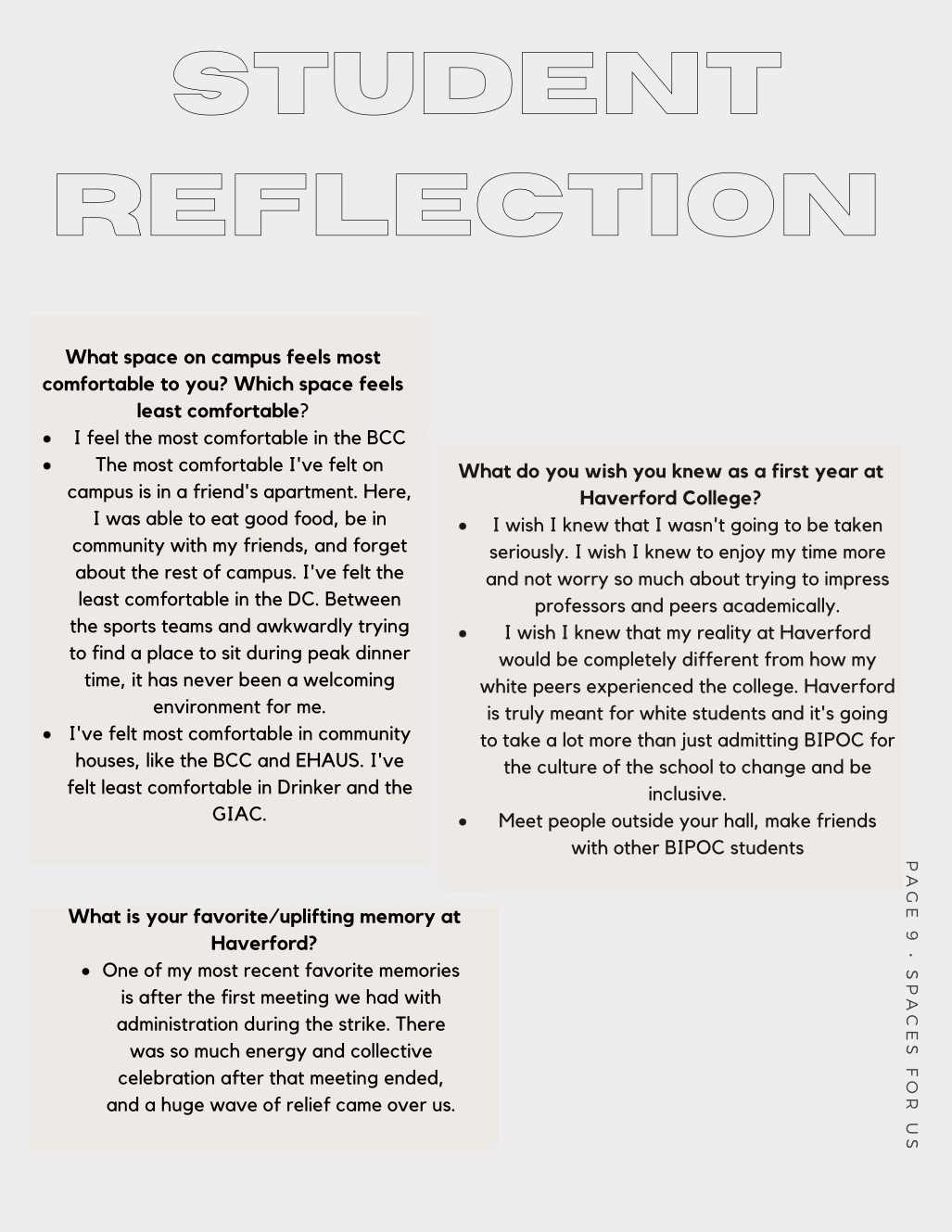
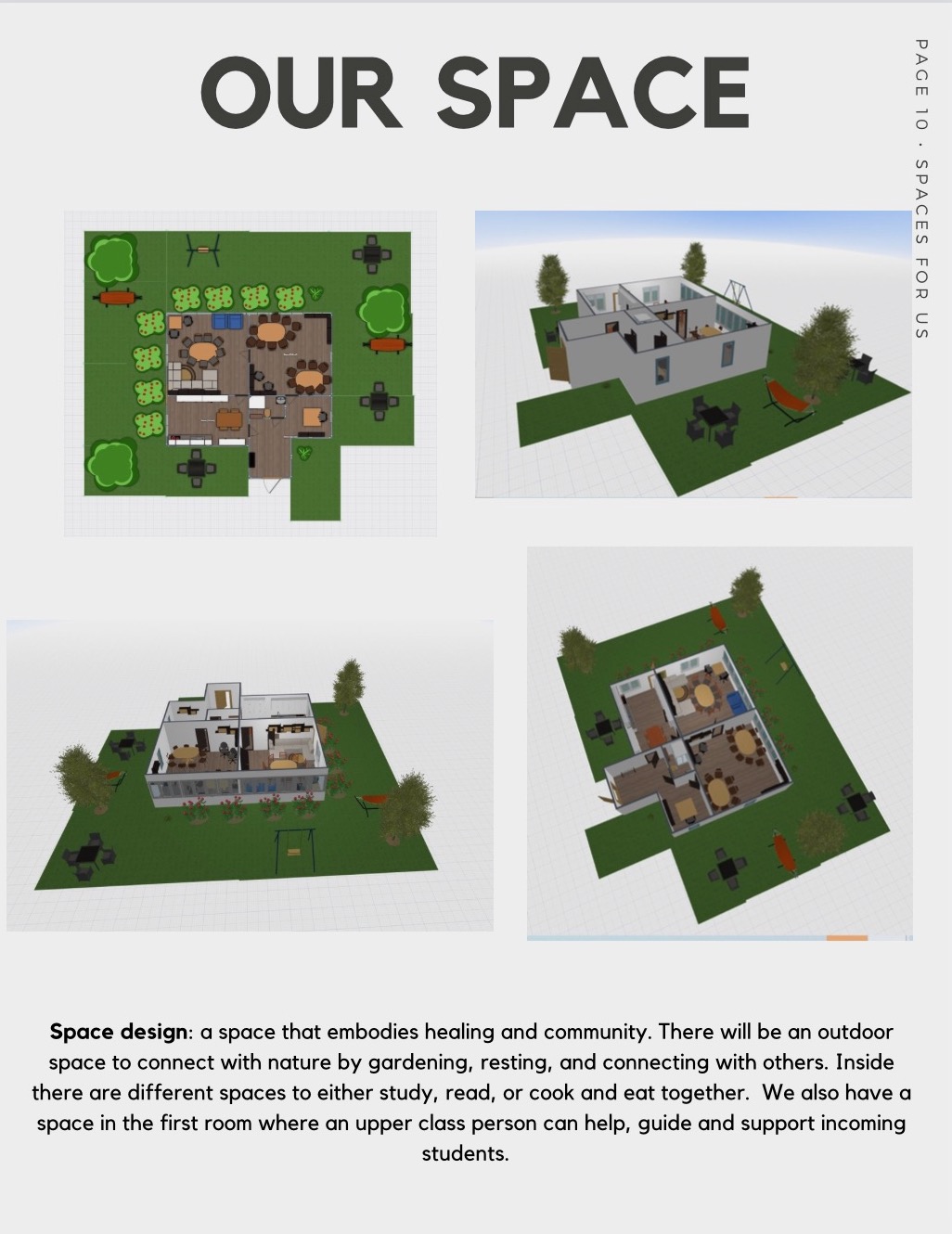
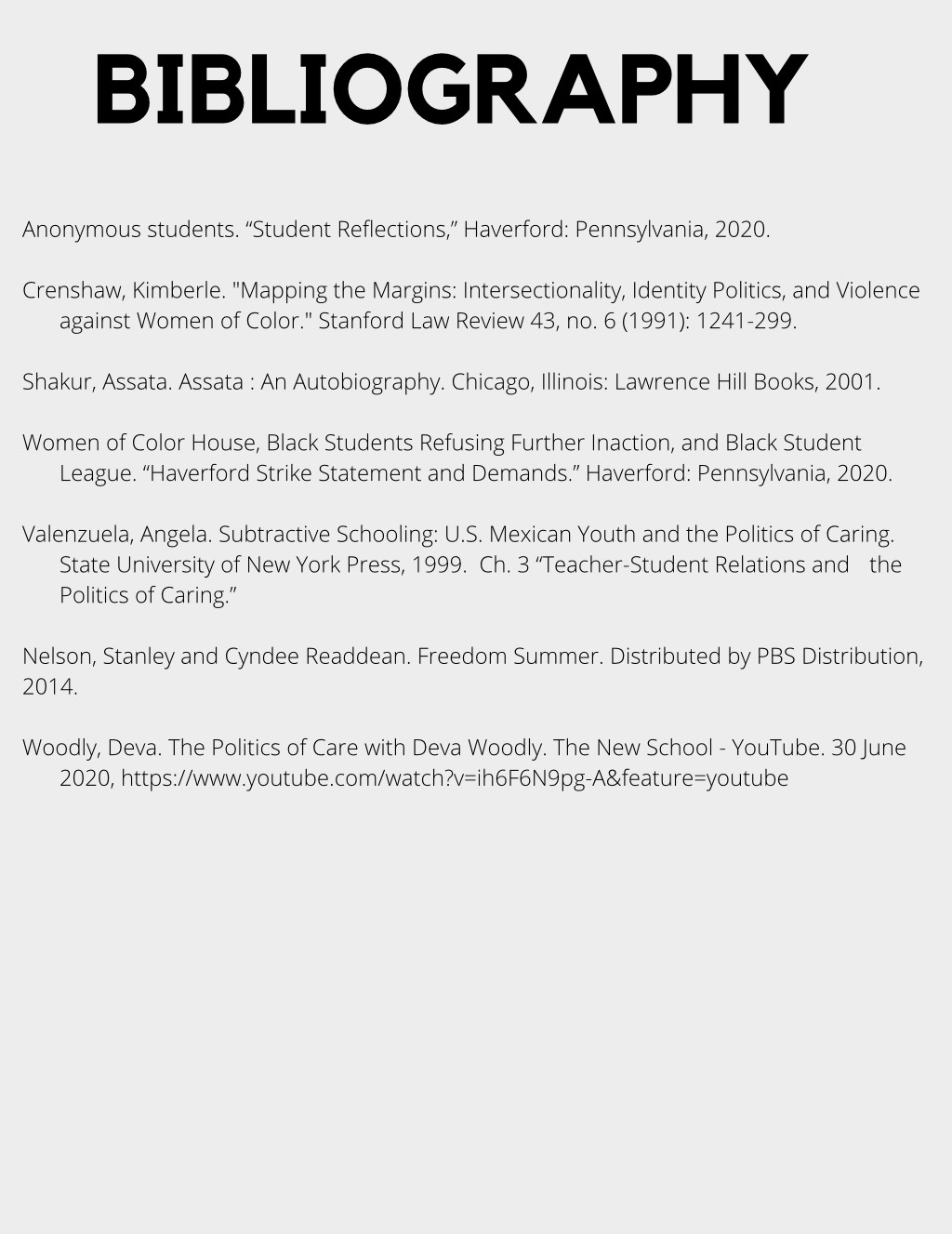
Spaces For Us is the cumulative project from the class "Bodies of Injustice: Health, Illness, and Healing in Contexts of Inequality" that combines both theoretical works and lived experience to imagine what "care" looks like in an academic institution for nonwhite students.
Zine
Haverford Strike
2020
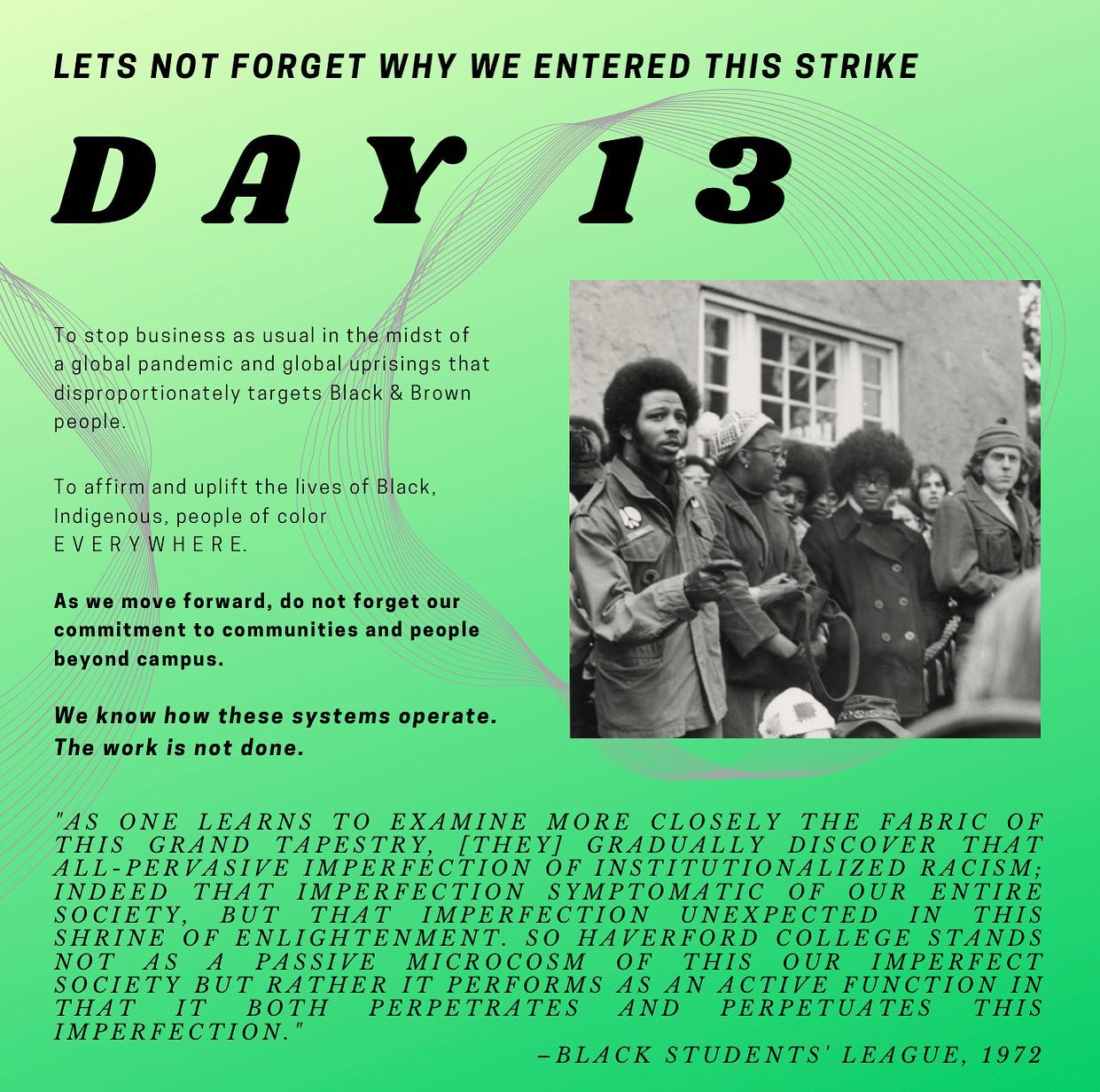
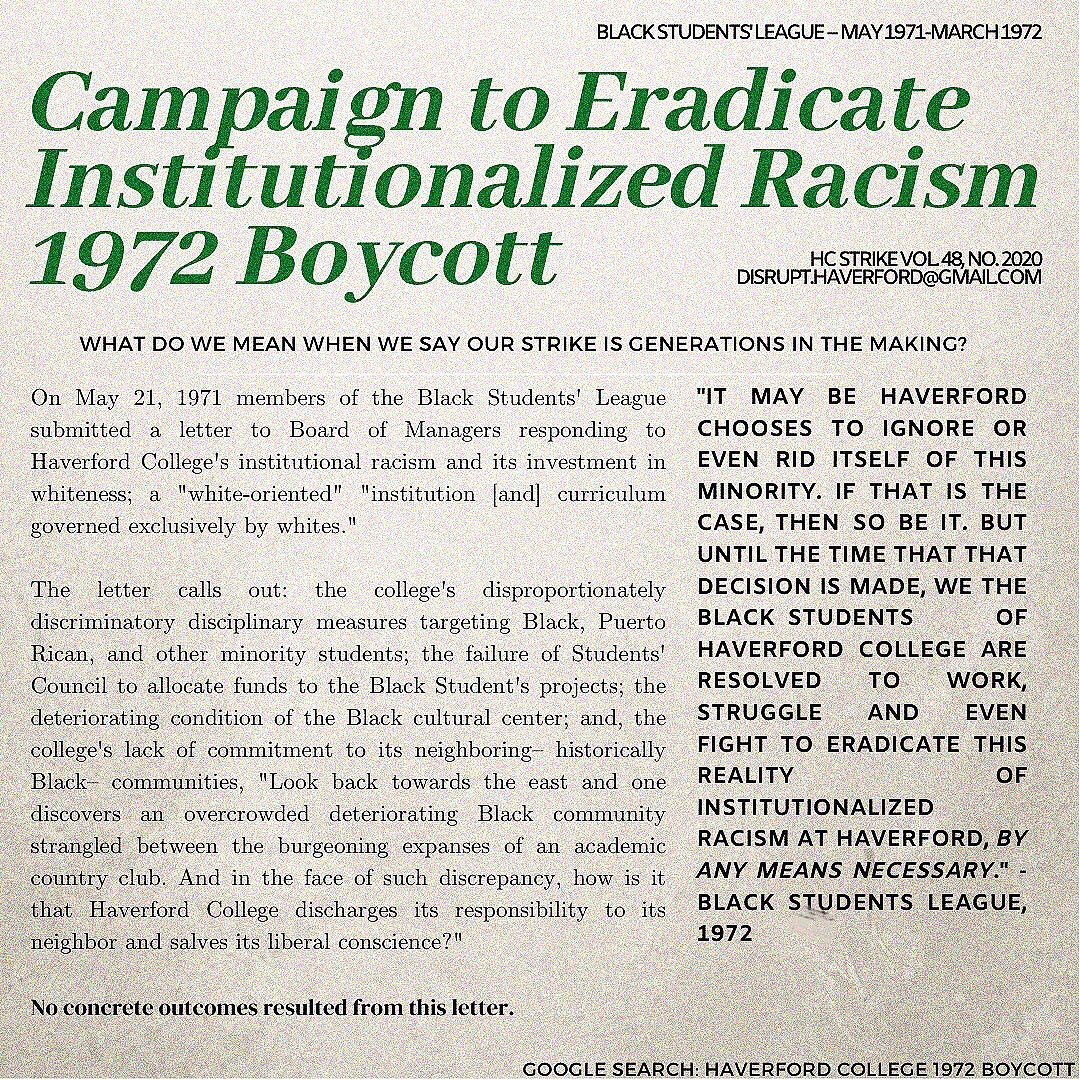
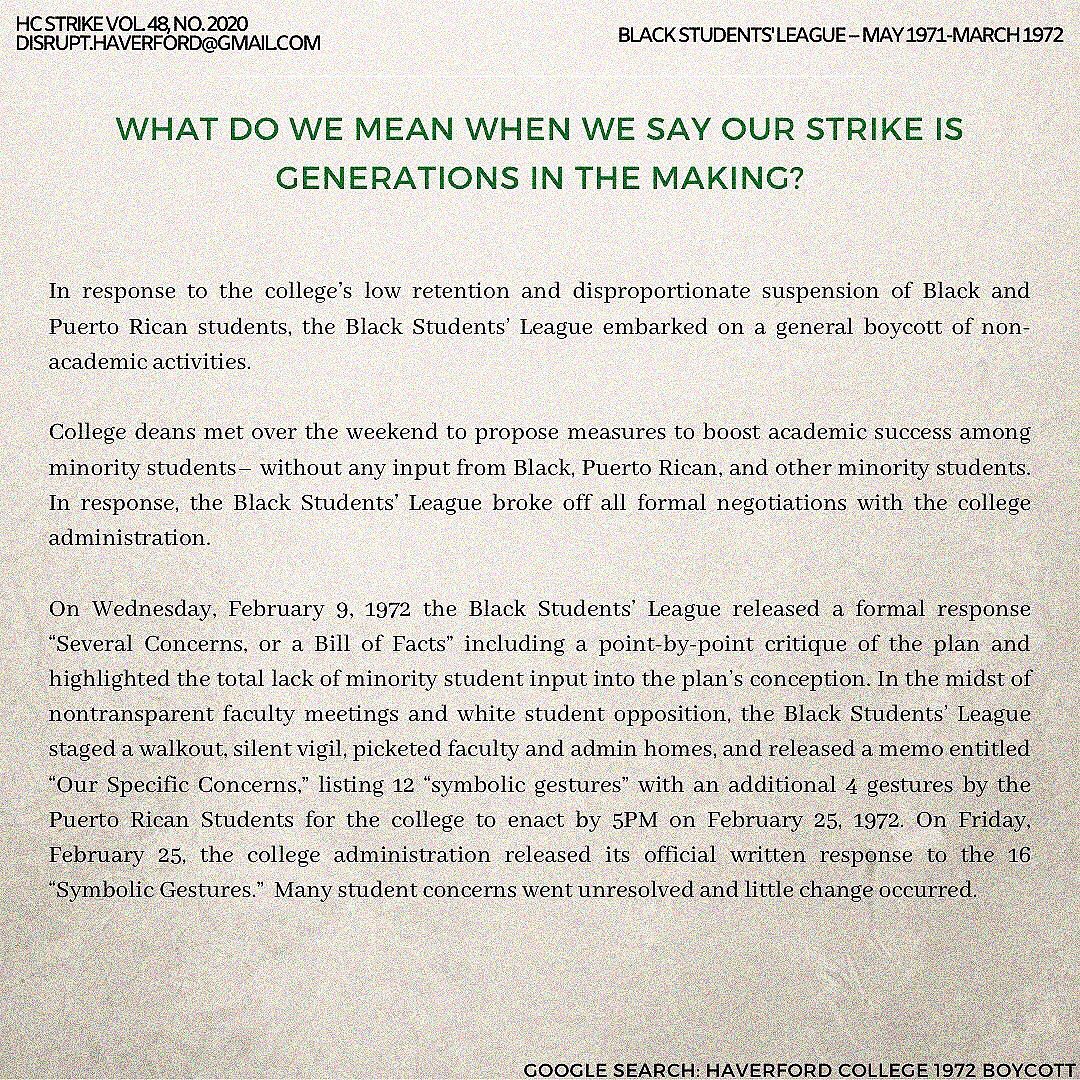
Students at Haverford College initiated a 14 day general strike at Haverford College due to the adminstration's failure to meet the demands of BIPOC students.
Illustration
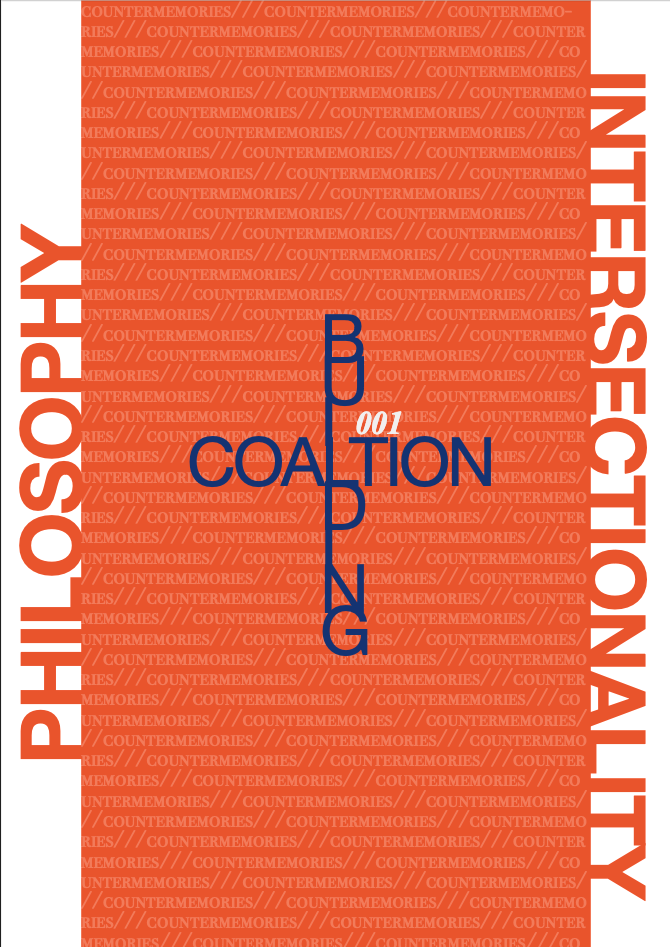
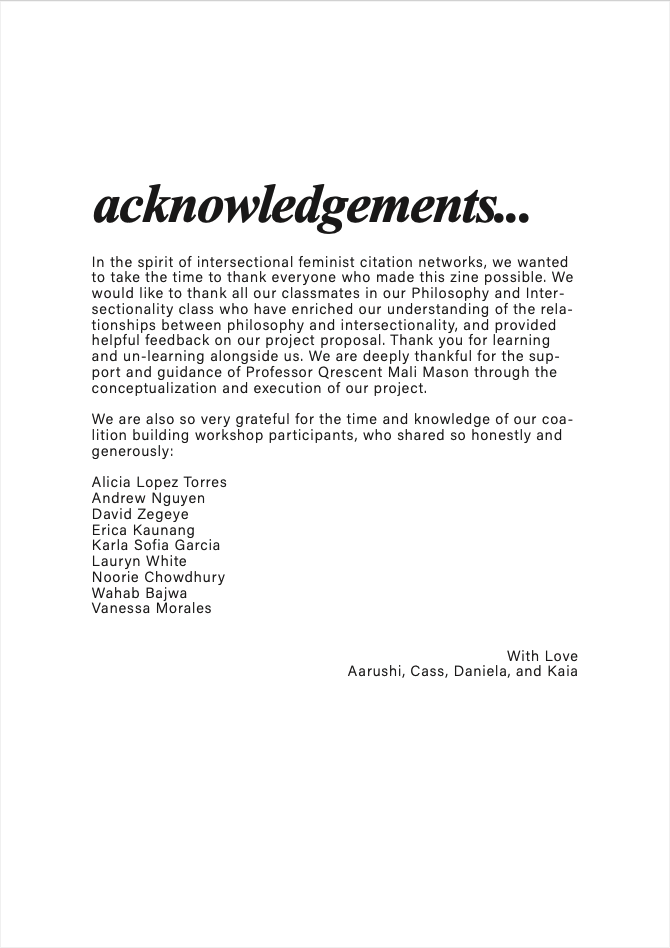
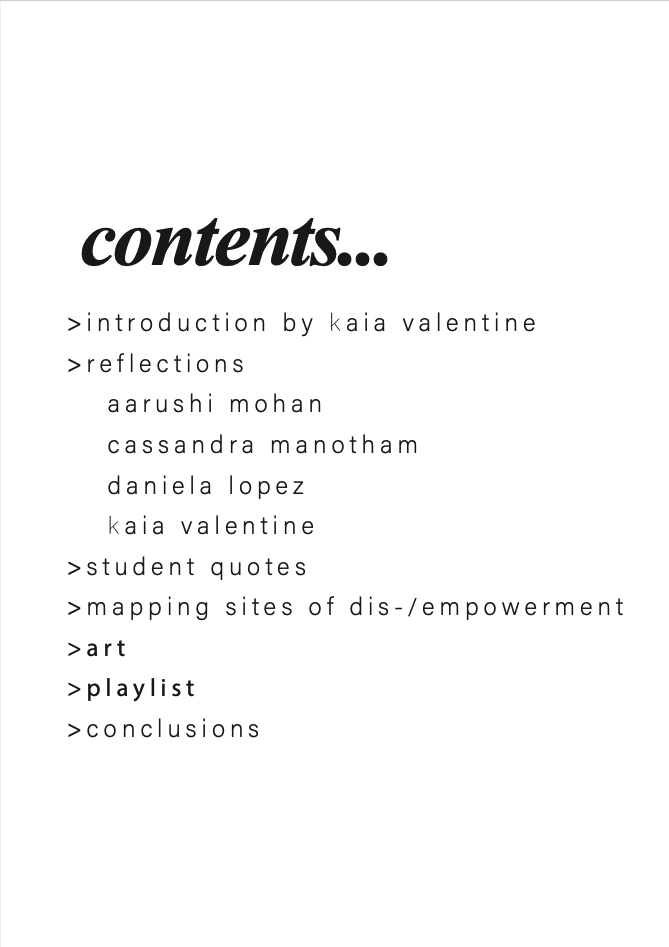
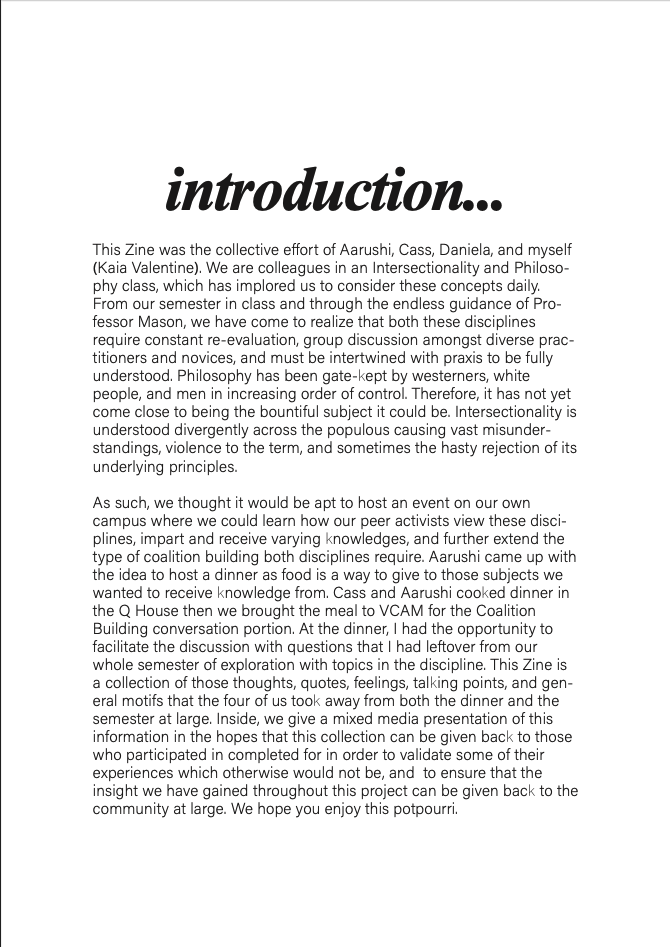
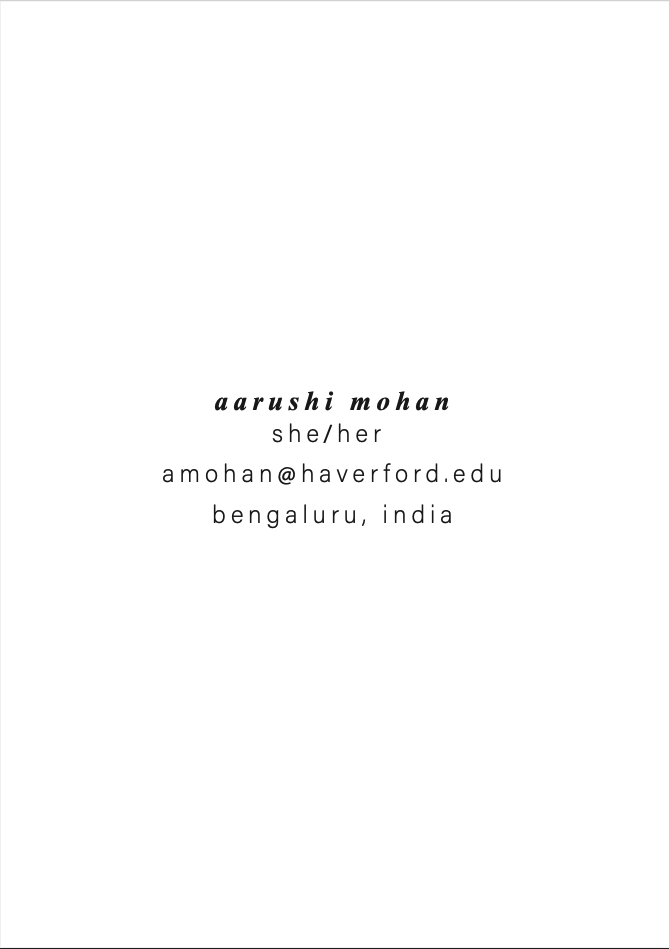
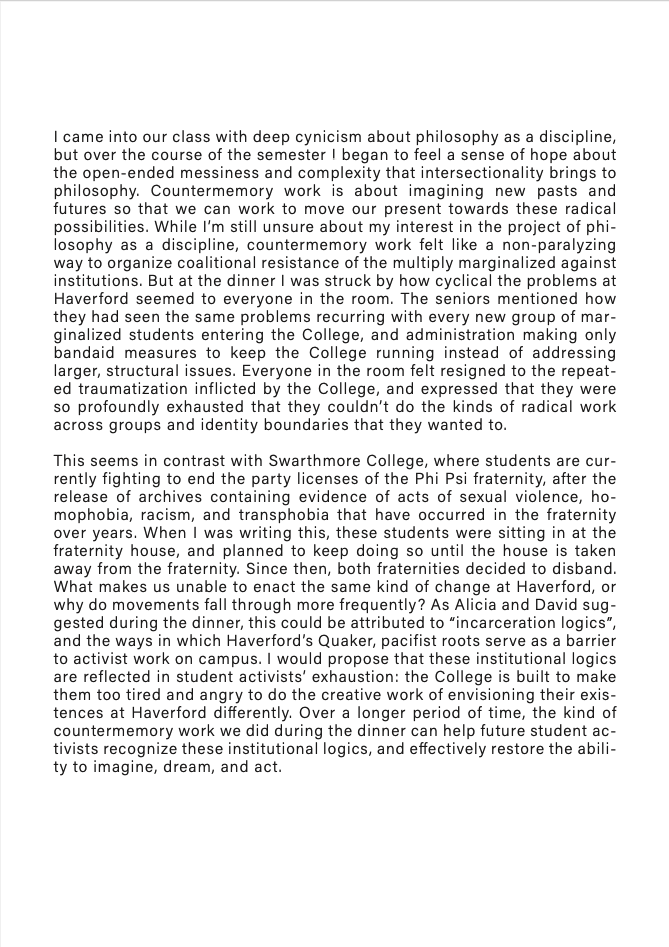
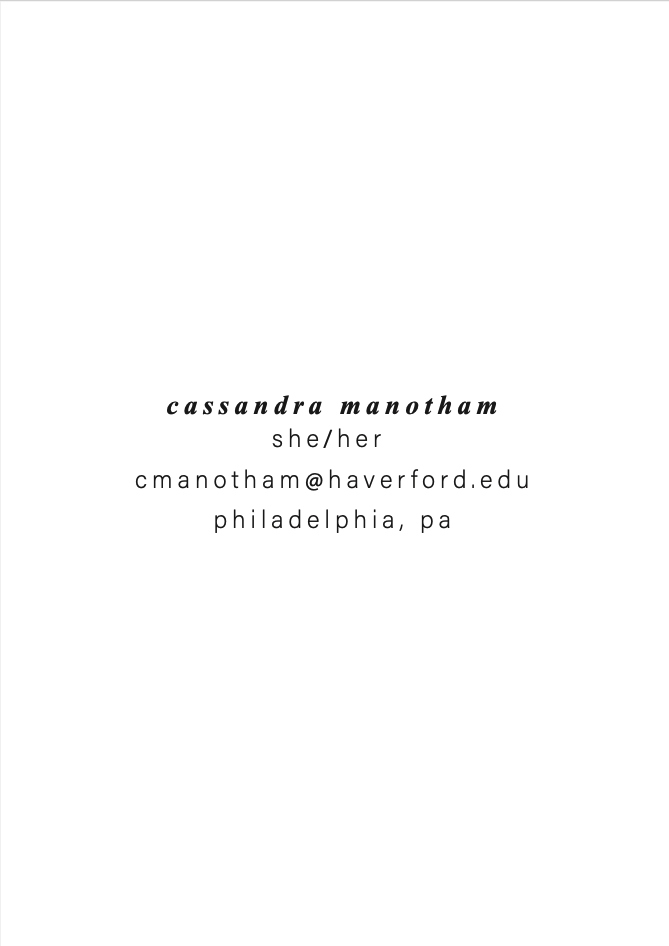
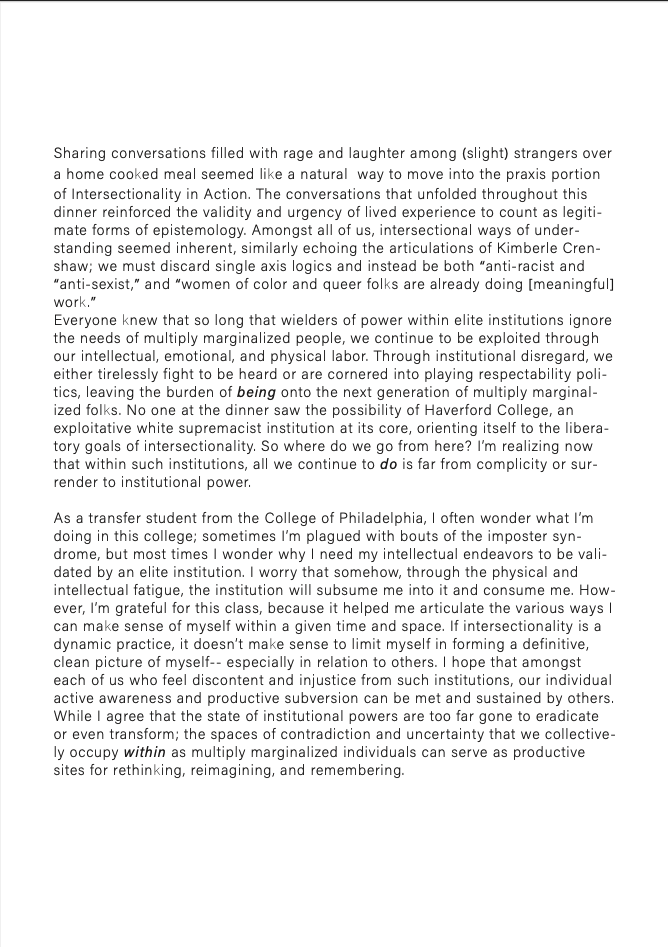
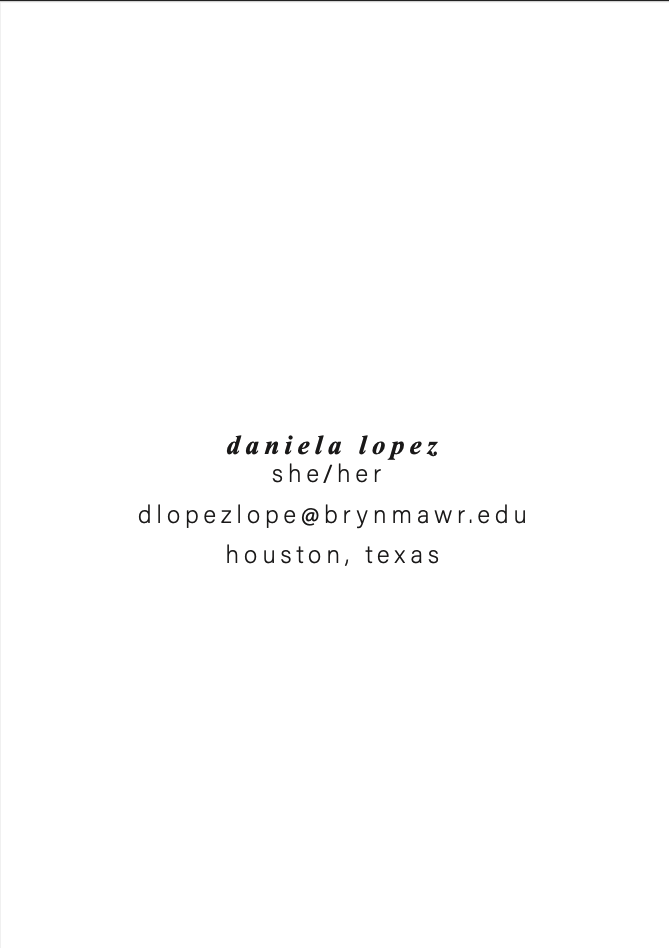
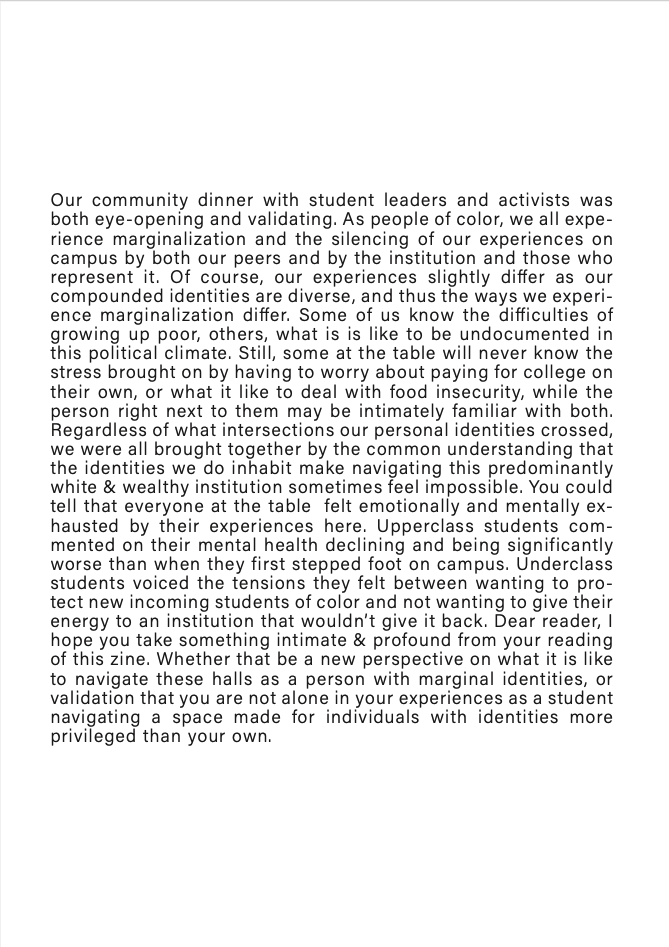
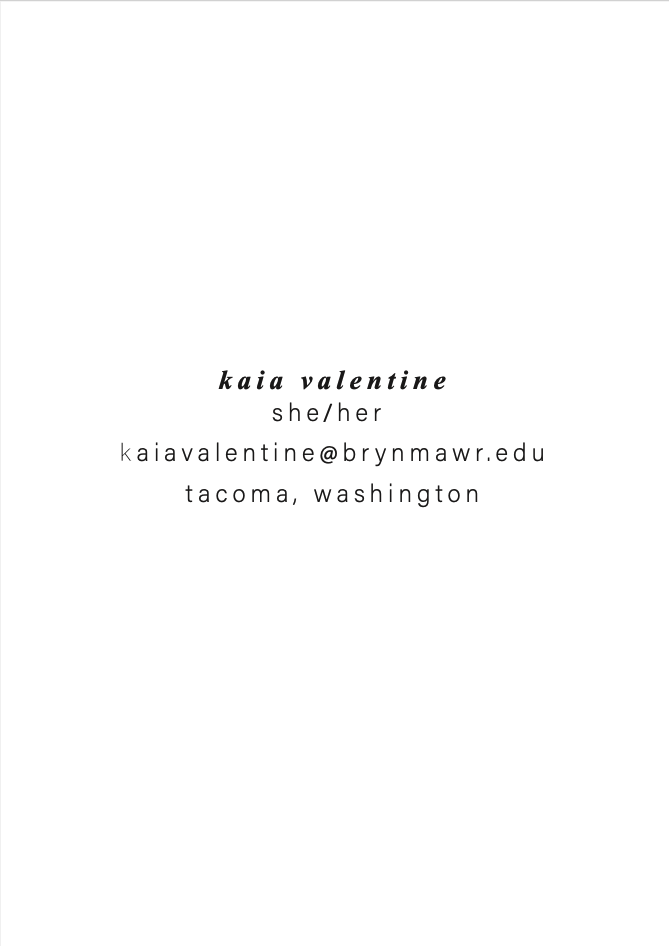
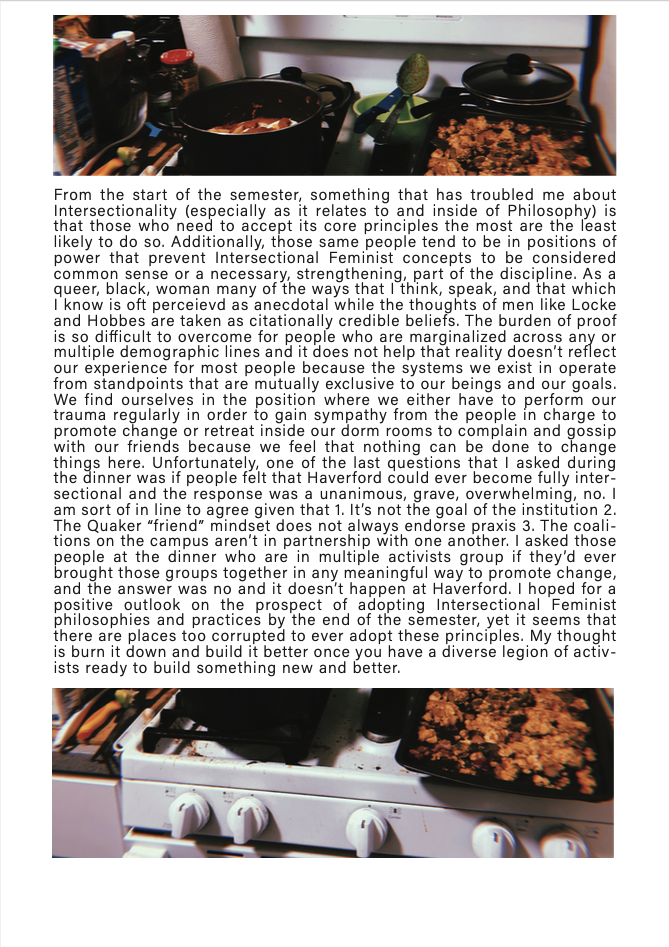
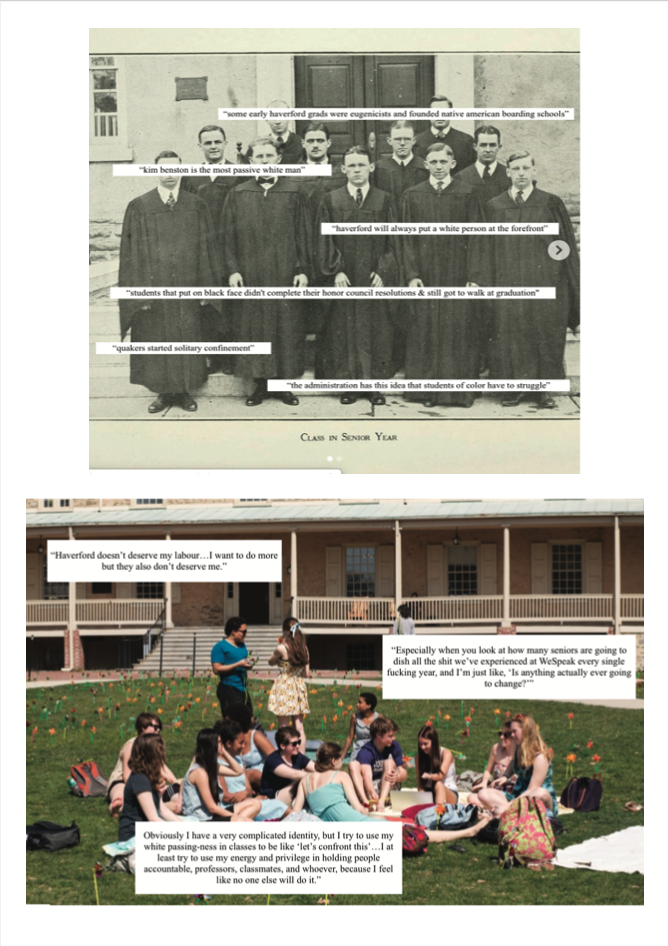
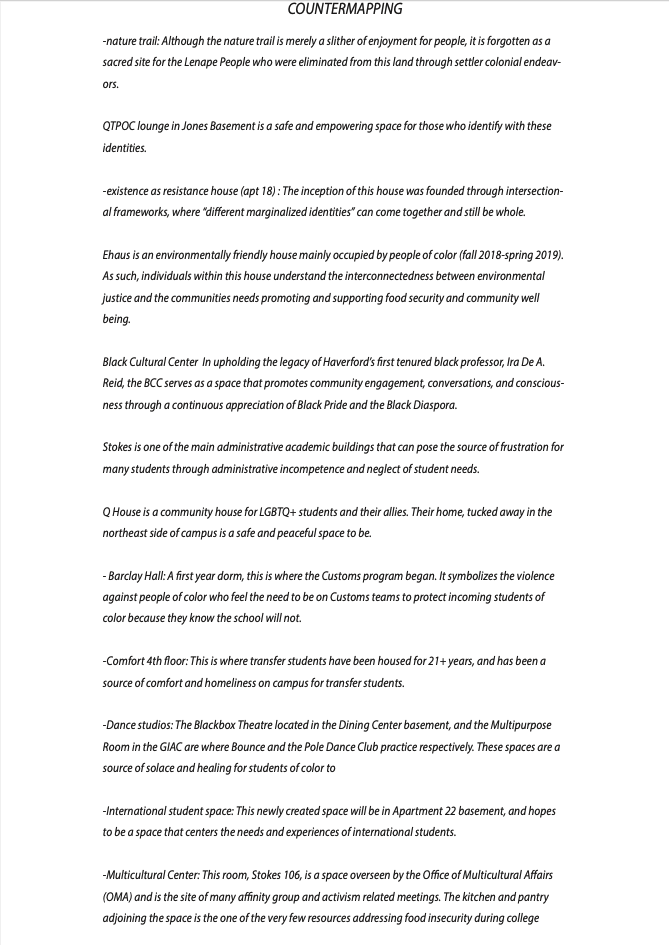
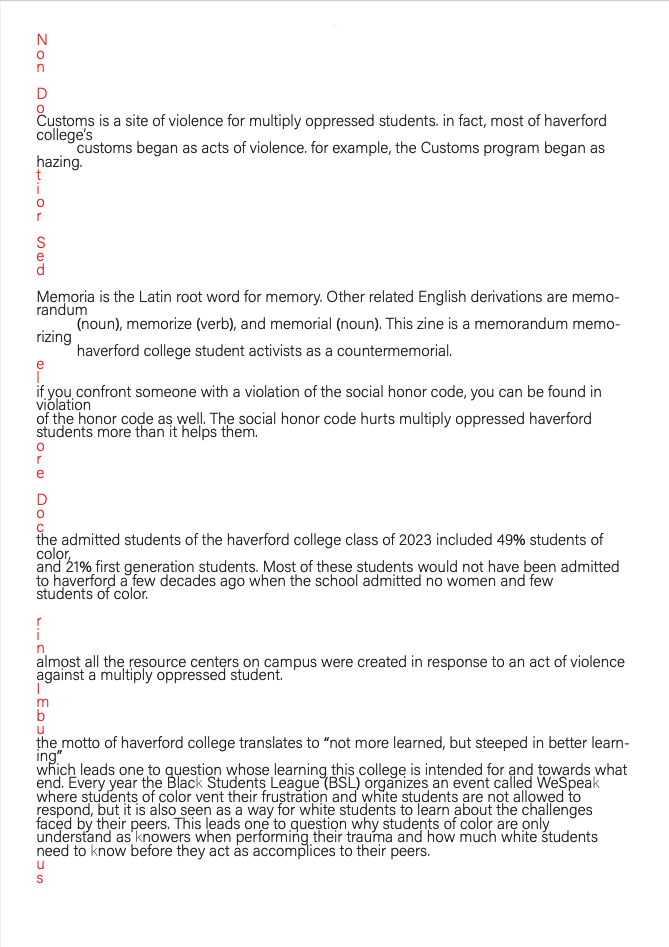
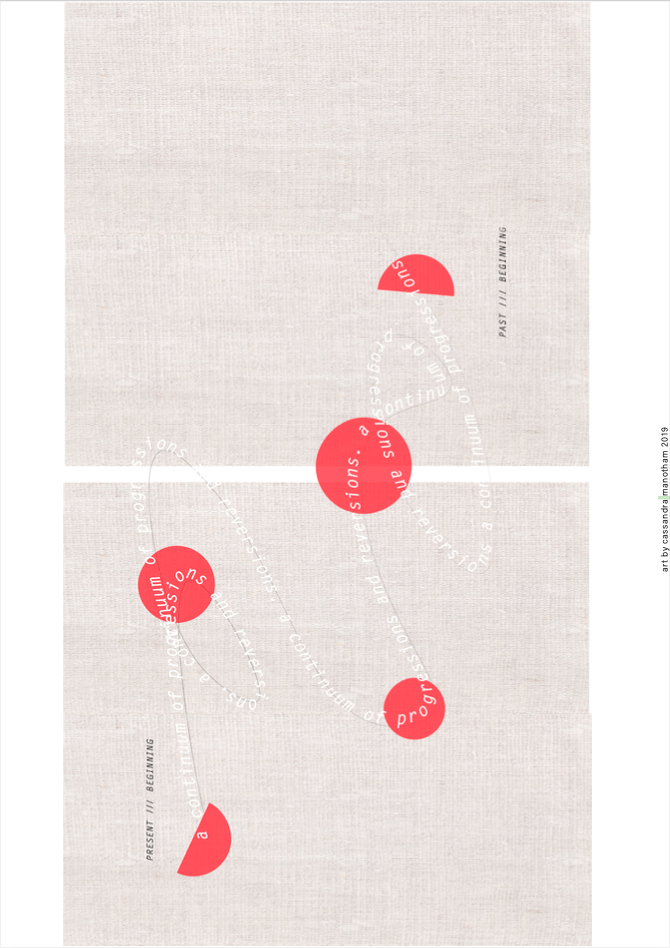
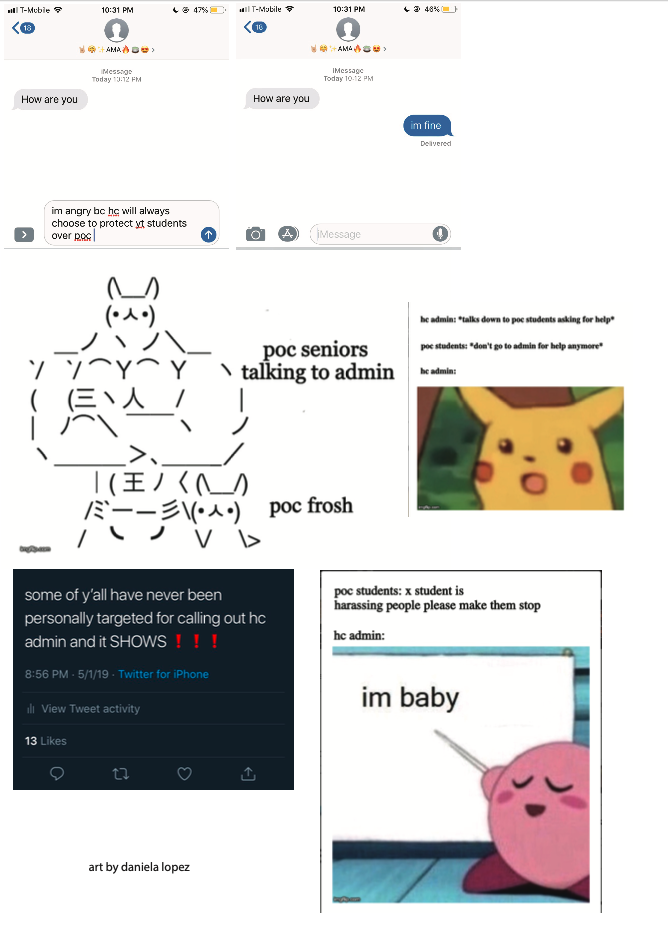
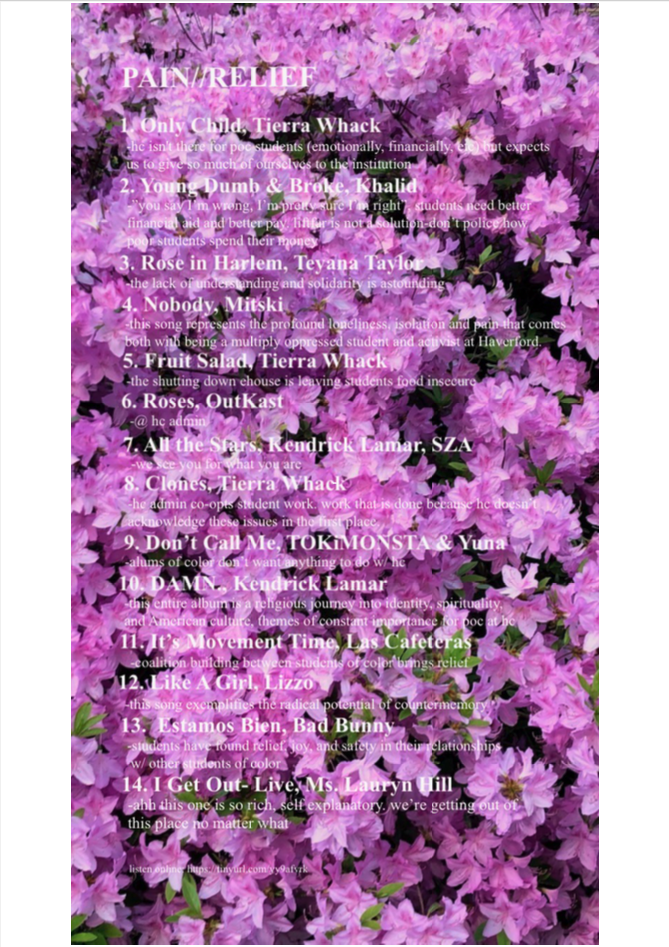
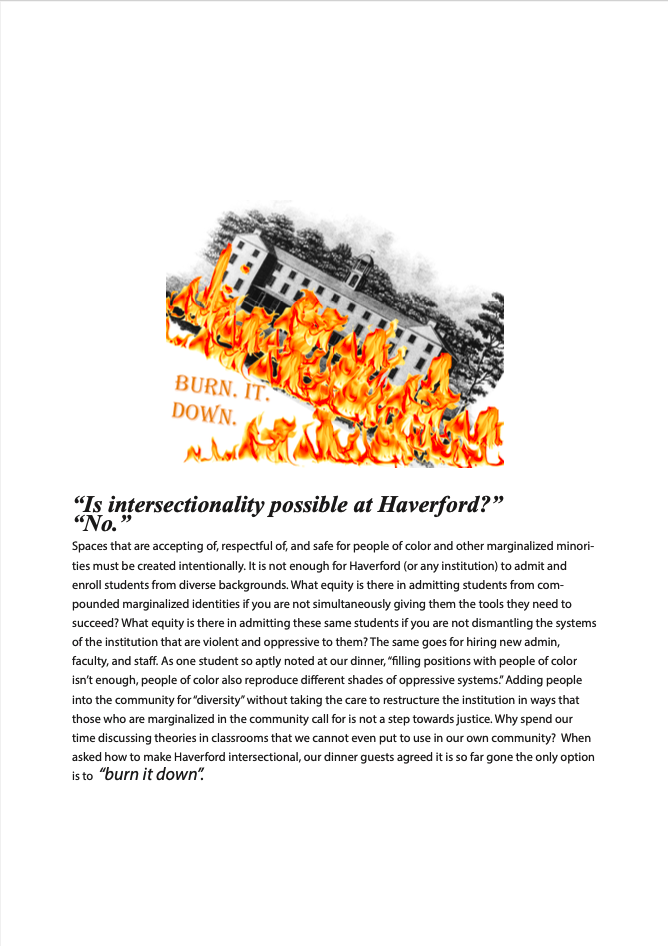
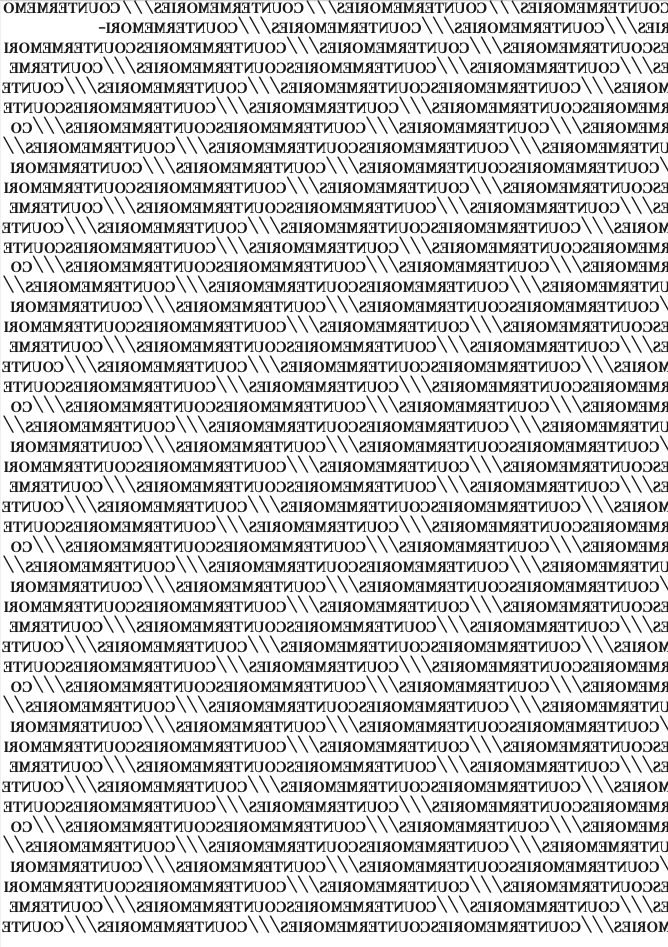
This work combines Black Feminist theory and praxis around care and intersectionality. Through a group interviews and a potluck, we engage students in the question of whether it is possible for historically marginalized people to thrive in elite academic institutions.
